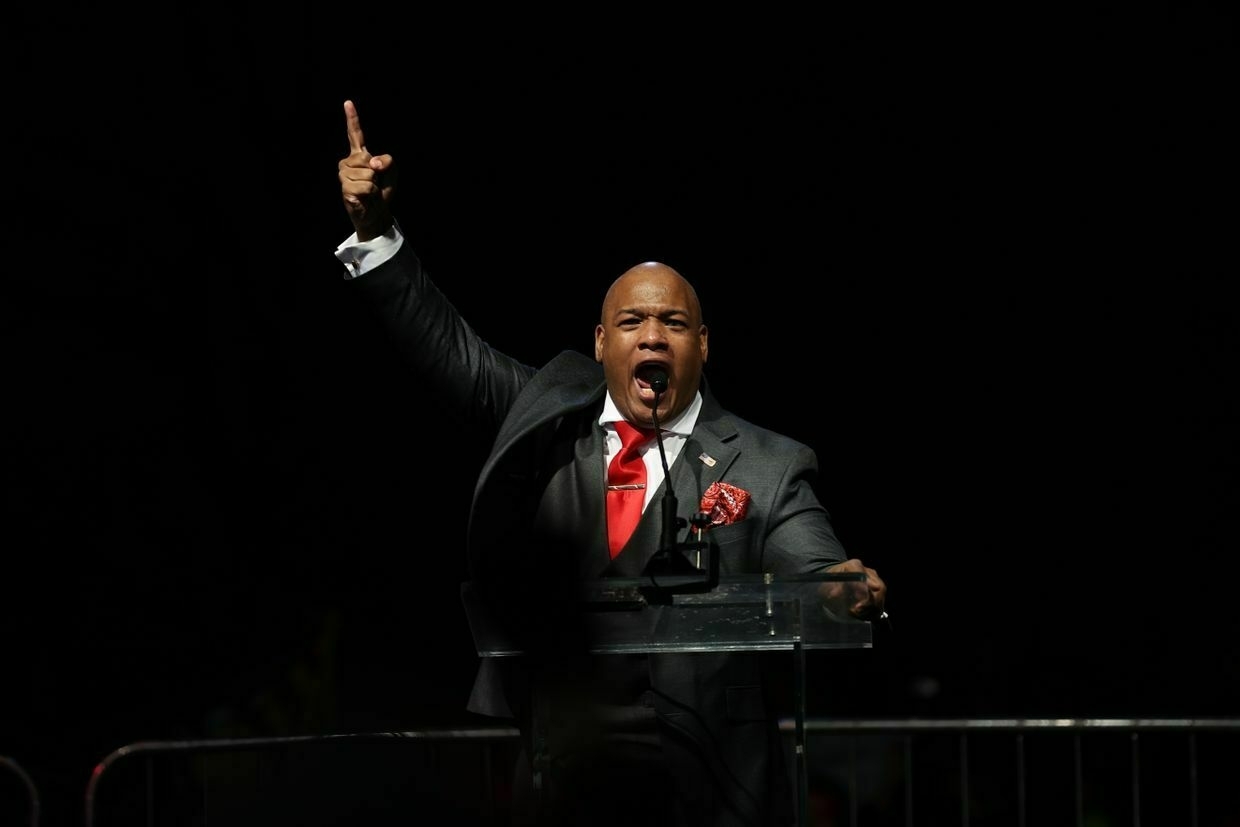-
6 countries ready to send troops for Ukraine 'reassurance force' so far, AFP reports
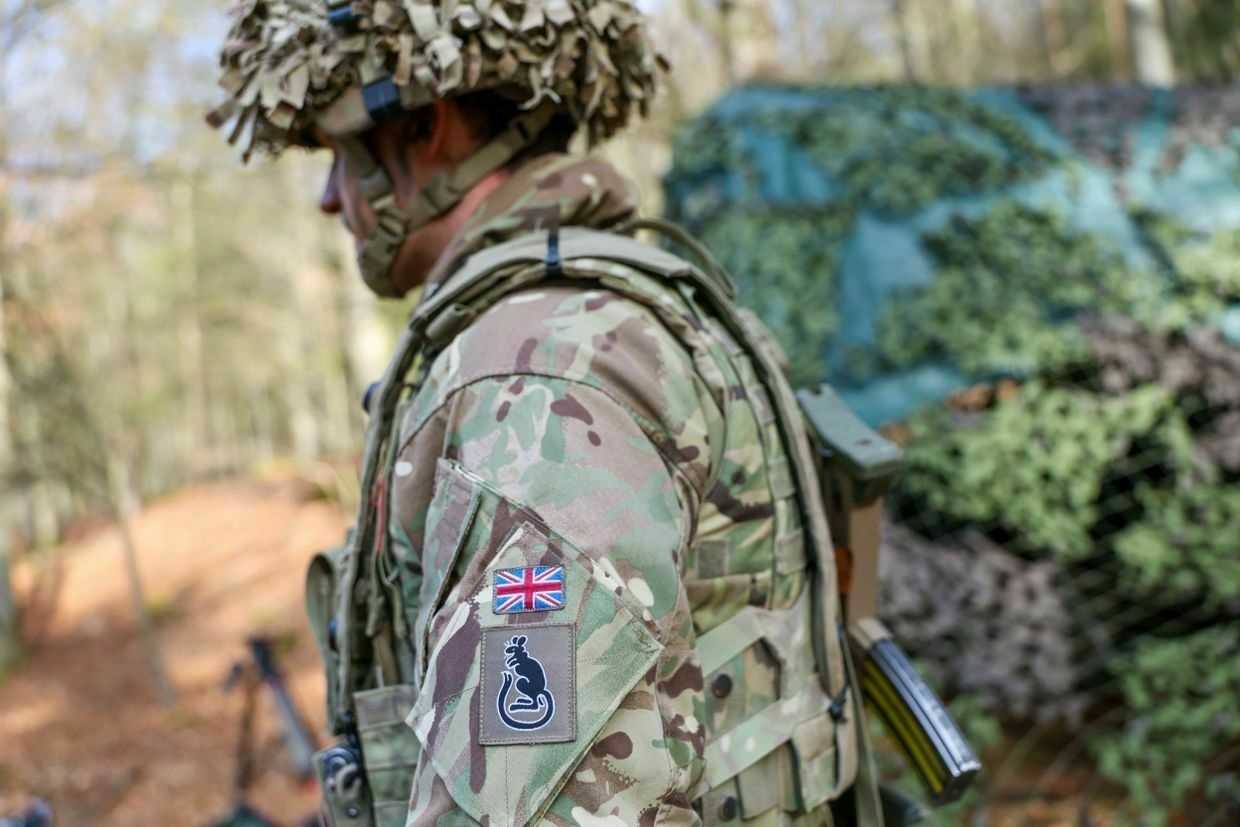
Only six countries have said so far that they are ready to deploy troops to Ukraine as part of the international “coalition of the willing” in case of a ceasefire, AFP reported on April 10, citing undisclosed European officials.
The U.K., France, the Baltic nations, and another unnamed country stand ready to send their soldiers, while other leaders want to see a more detailed plan before making commitments, according to the news agency.
AFP’s figure suggests that the number of willing countries is much lower than earlier reported. On April 9, Bloomberg wrote that 15 nations are open to sending their troops.
The British- and French-led coalition’s meeting in Brussels on April 10 shed further details on the so-called reassurance force. U.K. Defense Secretary John Healey explained that the troops would be primarily tasked with strengthening Ukraine’s military rather than operating as a traditional peacekeeping force separating the two belligerent sides.
In spite of this, many leaders of some 30-member strong coalition require more flashed out mission details.
“What is the mandate? What would we do in the different scenarios, for example, if there would be any escalation regarding Russia?” Dutch Defense Minister Ruben Brekelmans said, according to AFP.
“It’s helpful if there’s a clarity of what that mission would entail, and what do we do — if we are peacekeeping, deterrence or reassurance,” Swedish Defense Minister Pal Jonson said.
Coalition members unwilling to commit ground troops have been reportedly asked to provide other types of support, including intelligence, arms, or naval forces.
Another major hurdle is the U.S. participation, which London sees as a necessary condition for effective deterrence against Russia.
U.S. President Donald Trump’s administration has signaled intent to reduce U.S. military presence in Europe and ruled out sending troops as part of the reassurance force. London and Paris are seeking to convince Washington to at least provide airpower or intelligence support but have so far failed to extract any commitments.
Since taking office, Trump has sought to broker a peace deal in Ukraine while resuming direct communications with Moscow. The efforts to negotiate a ceasefire have largely stalled as Russia rejected a full 30-day truce backed by Kyiv and repeatedly violated the partial halt on strikes against energy infrastructure.
‘Putin is pure evil’ — Trump’s spiritual advisor on Russia’s war against UkraineWhen U.S. President Donald Trump paused military aid to Ukraine last month, the man described as his “spiritual advisor,” Pastor Mark Burns, backed the decision. This week, Burns is urging him to send Kyiv more tanks, fighter jets, and air defense. “I now believe that supporting Ukraine is AmericaThe Kyiv IndependentChris York
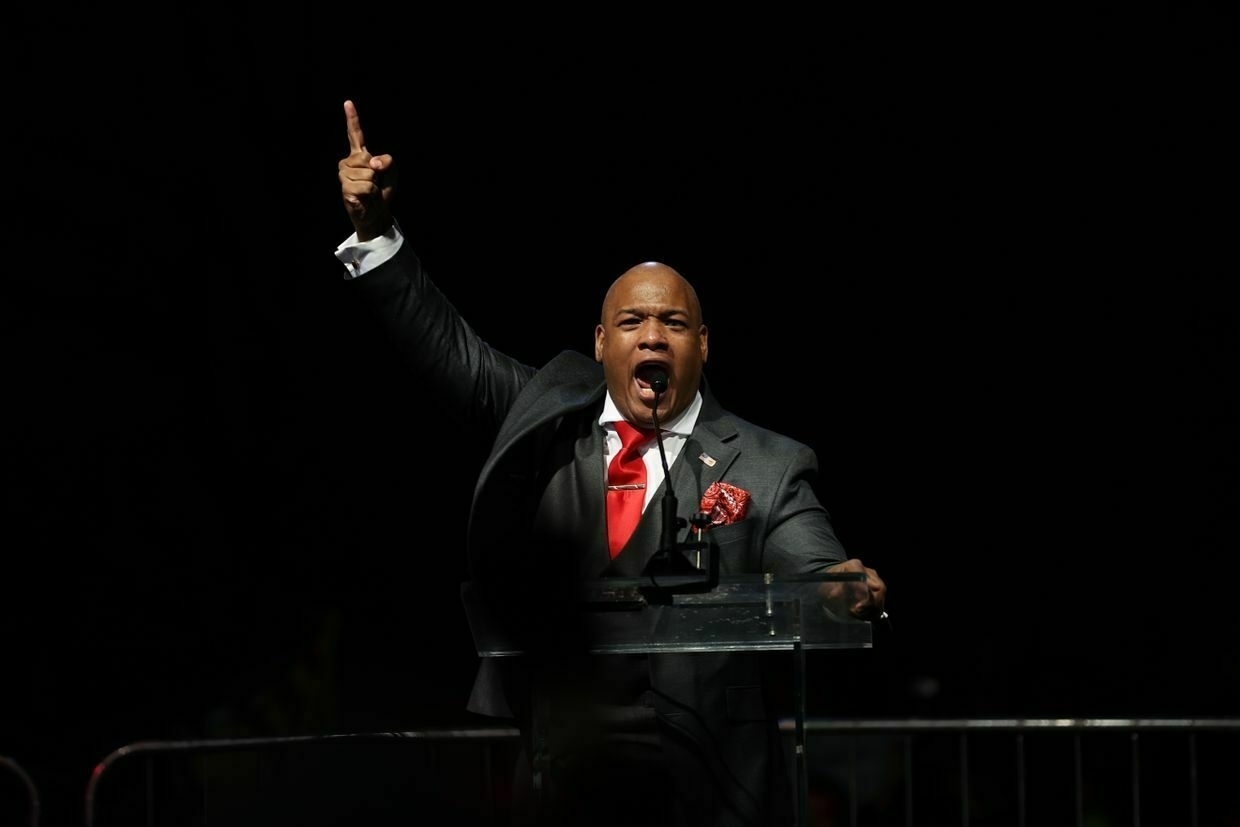
-
Ukrainian troops reportedly face issues with some German weapons
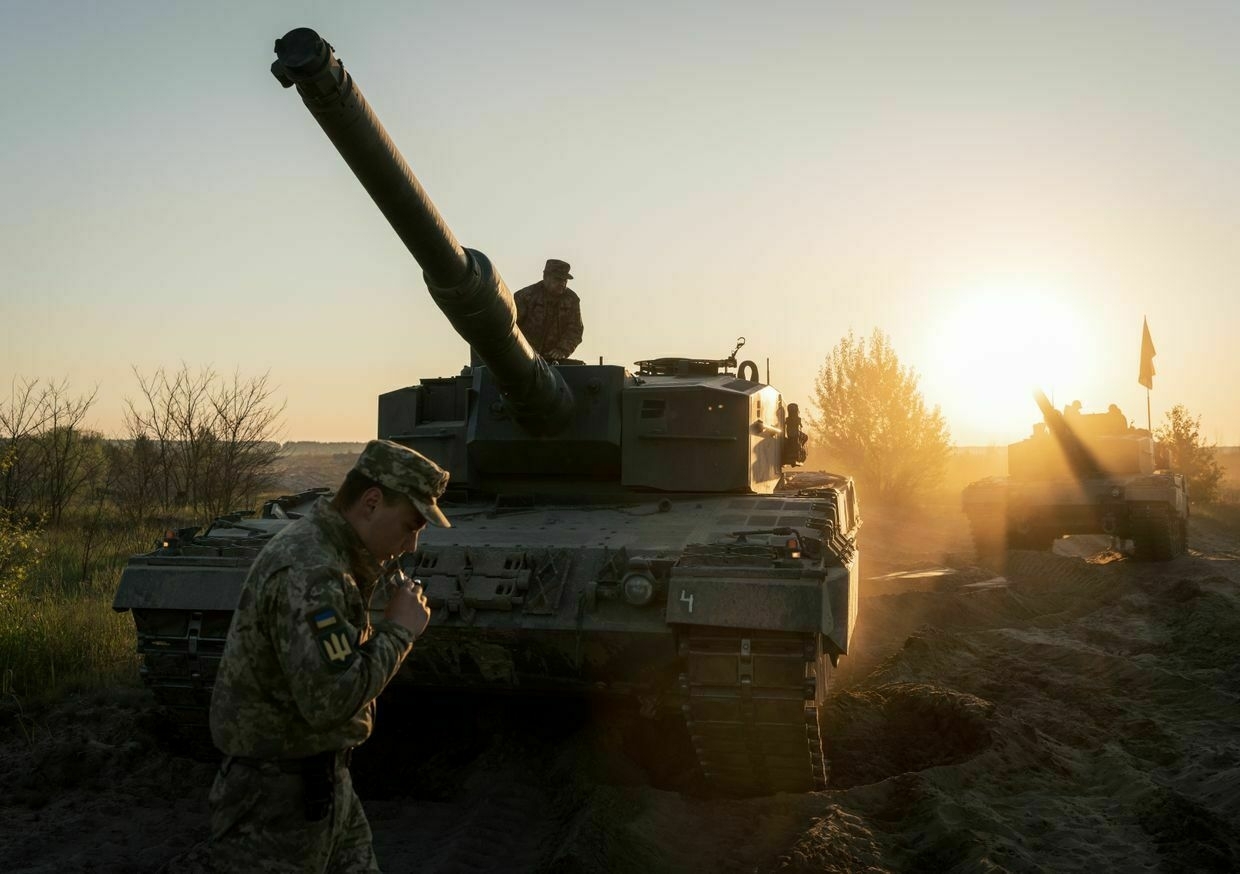
Ukrainian front-line units are struggling with several German-supplied weapons systems due to technical vulnerabilities, limited spare parts availability, and complicated maintenance, the newspaper Spiegel reported on April 10, citing internal German military documents.
The analysis references a January lecture in Delitzsch by the deputy military attache at the German Embassy in Kyiv, attended by around 200 junior Bundeswehr officers.
According to the transcript, while some German systems have earned praise in Ukraine, others have proven ill-suited for the rigors of high-intensity war.
The Panzerhaubitze 2000 self-propelled howitzer, described as “outstanding” in performance, was said to be so technically sensitive that its “suitability for combat is seriously questionable."
The Leopard 1A5, though labeled “reliable,” is reportedly deployed more as improvised artillery due to its inadequate armor. Meanwhile, the more advanced Leopard 2A6 often cannot be repaired on the front due to its costly maintenance and logistical demands.
Ukrainian forces have also faced constraints with air defense systems. The IRIS-T, while effective, suffers from limited availability and high ammunition costs.
The U.S.-made Patriot missile system, another critical component of Ukraine’s layered air defense supplied mainly by Germany, has reportedly struggled in the field due to aging MAN carrier vehicles, with spare parts increasingly hard to procure.
‘Putin is pure evil’ — Trump’s spiritual advisor on Russia’s war against UkraineWhen U.S. President Donald Trump paused military aid to Ukraine last month, the man described as his “spiritual advisor,” Pastor Mark Burns, backed the decision. This week, Burns is urging him to send Kyiv more tanks, fighter jets, and air defense. “I now believe that supporting Ukraine is AmericaThe Kyiv IndependentChris York
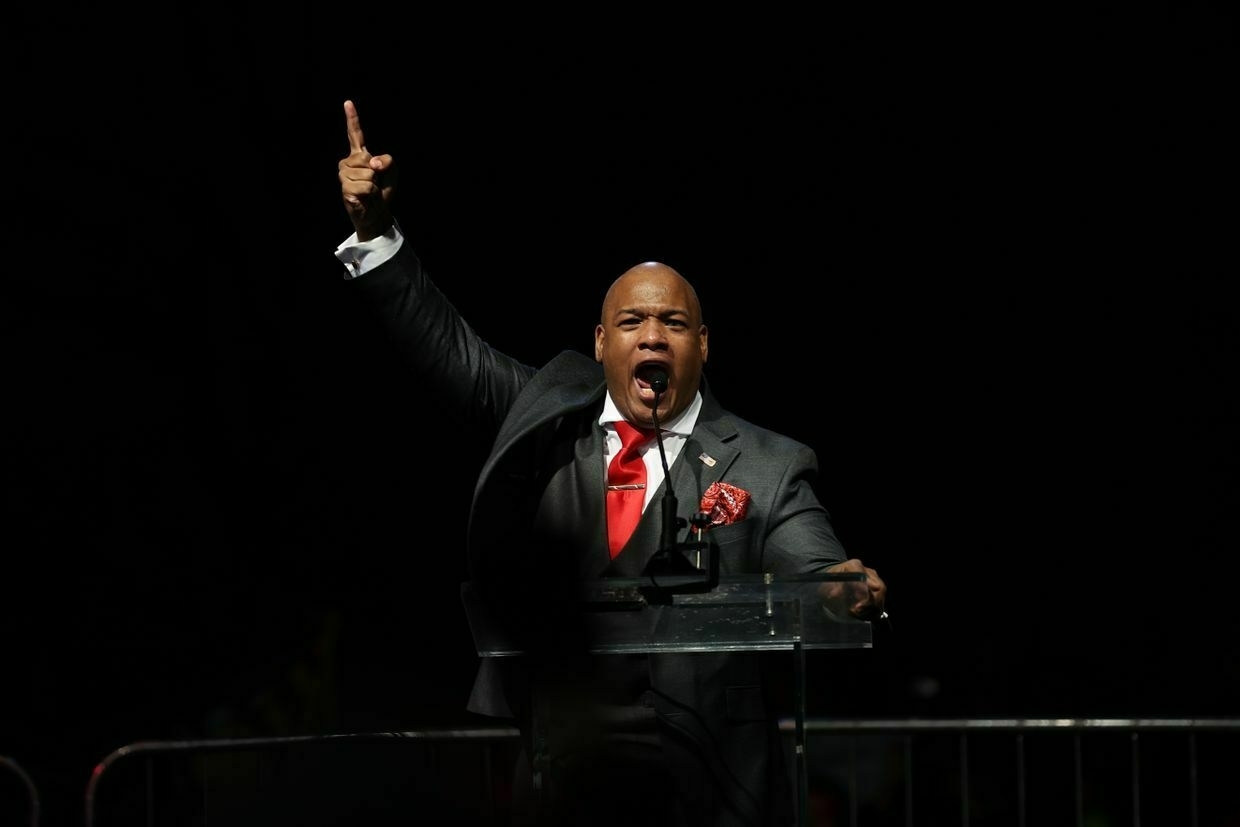
The Gepard anti-aircraft systems, however, stood out as the most successful German weapon deployed in Ukraine. Decommissioned before the war and reactivated or sourced from abroad, the system was described in the lecture as “the most popular, effective, and reliable” among Ukrainian troops.
Sources within the Bundeswehr acknowledged that the attache’s remarks reflect battlefield realities. German weapons, though often technically advanced, were deployed in Ukraine under extreme conditions that have accelerated wear and tear.
Rapid training provided to Ukrainian troops in Germany often left little time for in-depth technical instruction, compounding logistical challenges.
With repair centers far from the front and Ukraine’s infrastructure strained, field maintenance has become a serious obstacle. Despite these challenges, Germany remains Ukraine’s top military donor in Europe.
As U.S. President Donald Trump continues to advocate for reduced U.S. involvement in European security and explores restoring relations with Russia, Germany’s role is expected to expand further.
Germany’s incoming chancellor, Friedrich Merz, has already pledged to rearm the country and boost defense spending, including through a 500 billion euros ($544 billion) infrastructure fund to modernize the Bundeswehr.
Germany’s military rebirth is Europe’s best bet against PutinWhen Russian President Vladimir Putin launched his full-scale invasion of Ukraine in February 2022, he knew that he was upending Europe’s security order. But this was more of a tactical gambit than a calculated strategy, and he could not have predicted what would follow. Though U.S. President DonaldThe Kyiv IndependentShlomo Ben-Ami
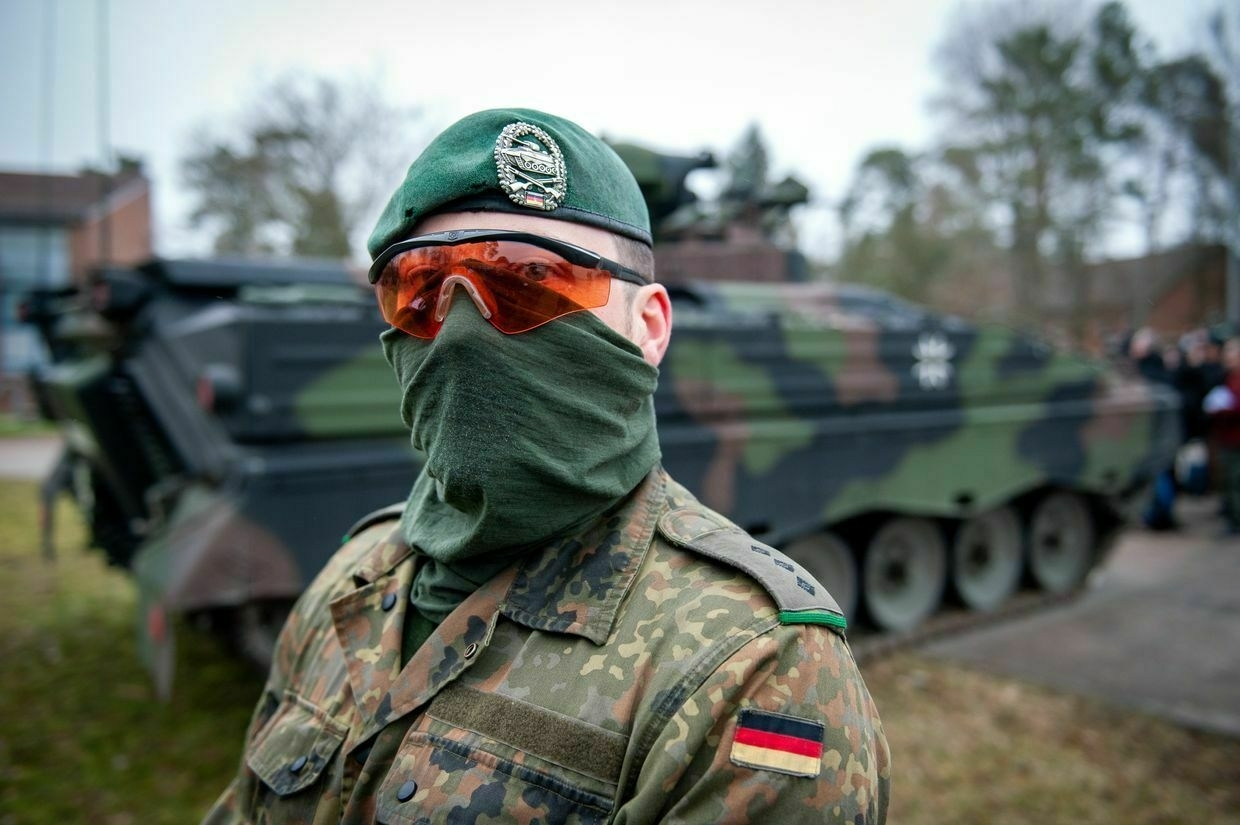
-
Trump's envoy Witkoff to meet Putin on April 11, Axios reports
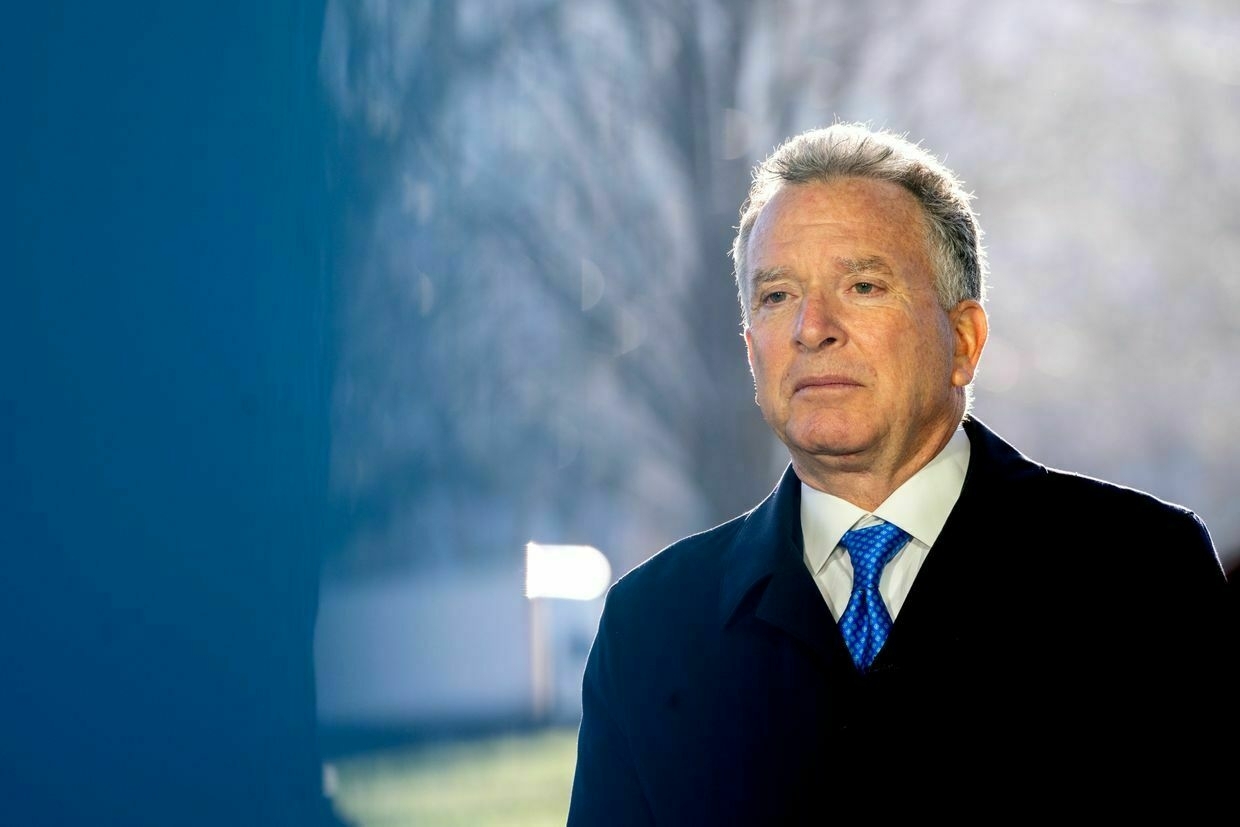
Steve Witkoff, U.S. President Donald Trump’s special envoy for the Middle East, traveled to Russia to meet Russian President Vladimir Putin on April 11, Axios reported, citing its source and FlightRadar data.
This would mark the third meeting between Putin and Witkoff, who has taken the lead in Trump’s efforts to broker a ceasefire between Russia and Ukraine.
The trip comes a week after Putin’s envoy, Kirill Dmitriev, met Witkoff and other U.S. officials in Washington and expressed “cautious optimism” about the renewed diplomatic engagement between the U.S. and Russia.
Trump’s push for a ceasefire has stalled as Moscow rejected a full 30-day truce backed by Washington and Kyiv and has repeatedly violated the energy ceasefire agreed upon on March 25.
These developments led to the U.S. president adopting increasingly harsh rhetoric toward Putin, saying he was “pissed off” and “very angry” at the Russian leader over his attacks on President Volodymyr Zelensky’s credibility and stalled peace talks.
The Trump administration has repeatedly threatened additional sanctions and tariffs against Russia unless it comes to the negotiating table and scales down attacks on Ukraine but is yet to take the step.
U.S. and Russian officials met in Istanbul on April 10 for the second round of talks about embassy operations, with Ukraine reportedly not being on the agenda. The same day, the two countries carried out a prisoner exchange, with Russia releasing U.S.-Russian national Ksenia Karelina in exchange for German-Russian citizen Artur Petrov.
The two sides also led two rounds of discussions on peace in Ukraine in Saudi Arabia.
Ukraine war latest: US ambassador to Ukraine to resignKey developments on April 10: * US ambassador to Ukraine to resign, State Department tells Kyiv Independent * ‘Before I got there, I had never held a weapon’ — Ukraine shows interrogation of Chinese POWs * Ukraine won’t accept any limits on its army in talks with Russia, official says * Russia…The Kyiv IndependentThe Kyiv Independent news desk
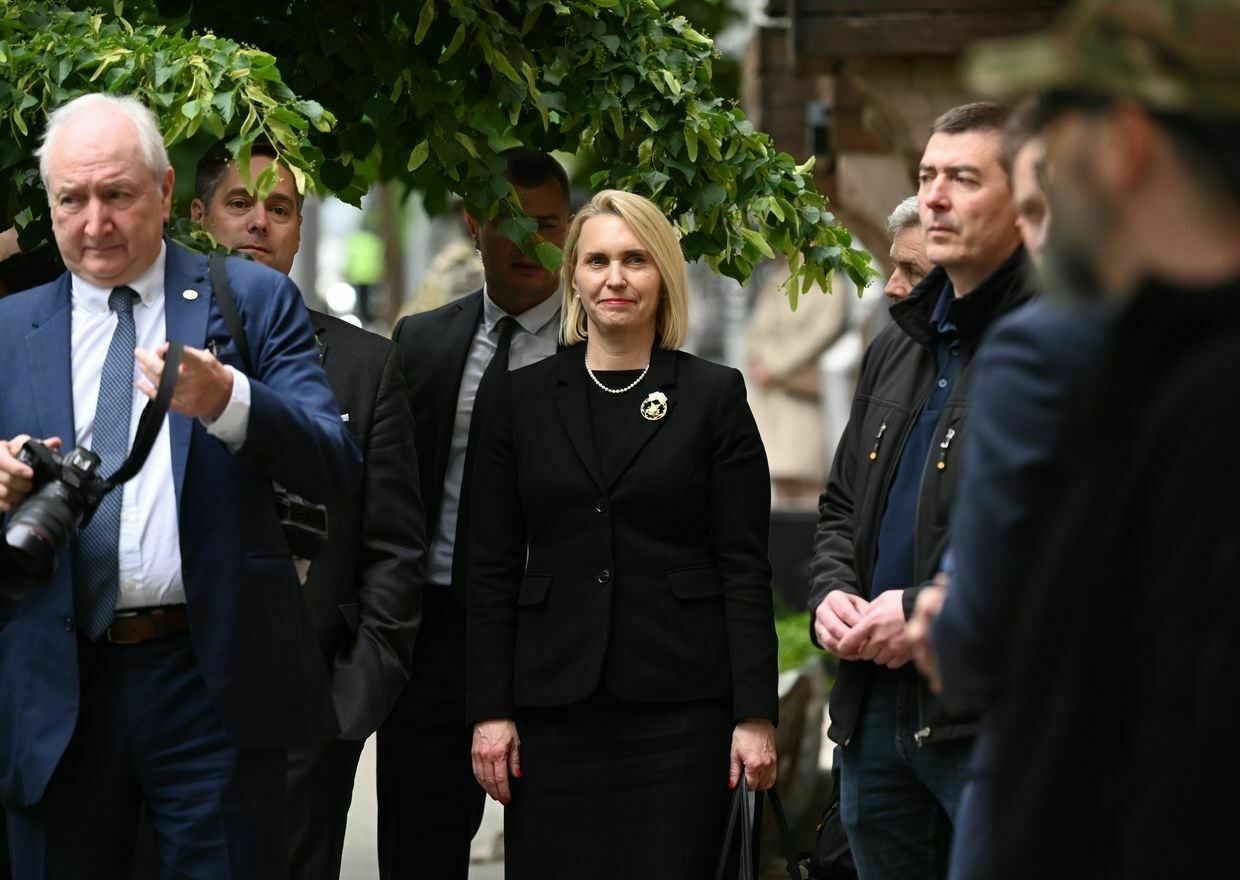
-
UK reportedly considers 5-year troop deployment to Ukraine to help rebuild army
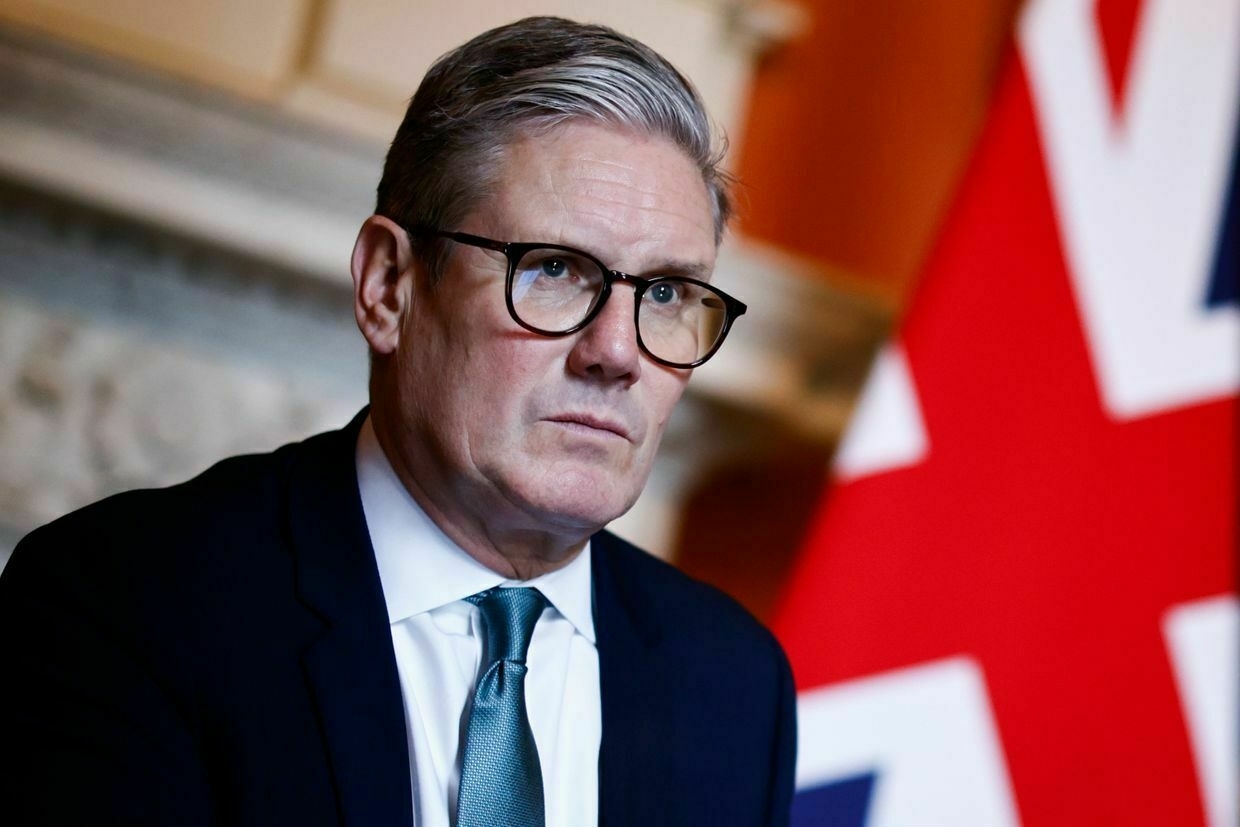
The U.K. is weighing plans to send British troops to Ukraine for up to five years as part of a broader European-led effort to rebuild Kyiv’s military, the Telegraph reported on April 10.
Military planners in London and Paris believe such a deployment could discourage Russian President Vladimir Putin from launching future offensives.
The proposal, developed within a multinational “coalition of the willing” led by the U.K. and France, would involve sending allied troops into Ukraine to help train its Armed Forces and stabilize the country after any potential ceasefire or peace settlement.
The initiative was first introduced by British Prime Minister Keir Starmer at a March 2 summit in London. The summit brought together leaders from several European countries and Canada to outline postwar military assistance for Ukraine.
At least 37 nations — including European, Commonwealth, and Asian countries — have joined the coalition discussions, with 15 reportedly prepared to commit troops.
The troop deployment plan foresees a phased withdrawal and will help with training Ukrainian forces. According to the Telegraph, it would also provide security assurances for Ukraine’s airspace and territorial waters.
Royal Air Force fighter jets may also be sent to reinforce Ukraine’s defenses as part of the proposed security guarantees.
French officials reportedly believe Russia is unlikely to attack Western forces stationed in Ukraine, given the Russian military’s difficulty securing even modest gains on the battlefield.
While London and Paris have lobbied Washington to support the plan with airpower, intelligence, or surveillance capabilities, the Trump administration has yet to offer any commitments and has ruled out deploying ground troops.
U.S. President Donald Trump has also not offered any security guarantees to Ukraine and is reportedly preparing to scale back the U.S. military presence in Europe.
Without U.S. backing, the European reassurance force faces questions over its long-term viability. U.K. officials maintain that American participation remains critical.
Trump claimed on Feb. 24 that Putin would accept the presence of European peacekeepers in Ukraine as part of a settlement, though Russian Foreign Minister Sergey Lavrov dismissed the suggestion.
Kremlin officials have repeatedly said that any foreign troop presence in Ukraine would be treated as direct involvement in the conflict.
‘Putin is pure evil’ — Trump’s spiritual advisor on Russia’s war against UkraineWhen U.S. President Donald Trump paused military aid to Ukraine last month, the man described as his “spiritual advisor,” Pastor Mark Burns, backed the decision. This week, Burns is urging him to send Kyiv more tanks, fighter jets, and air defense. “I now believe that supporting Ukraine is AmericaThe Kyiv IndependentChris York
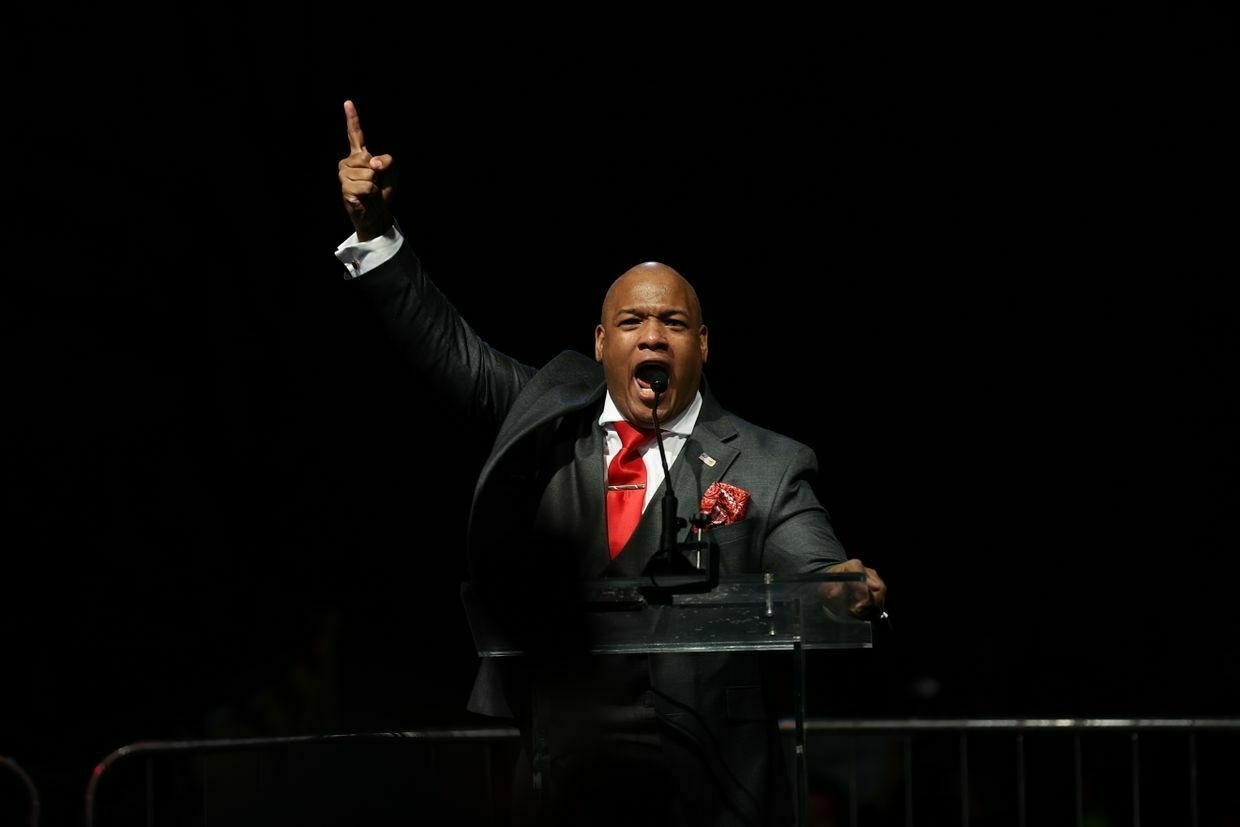
-
'Nothing else can be discussed' about Russia, Ukraine until 'the killing stops,' US State Department says
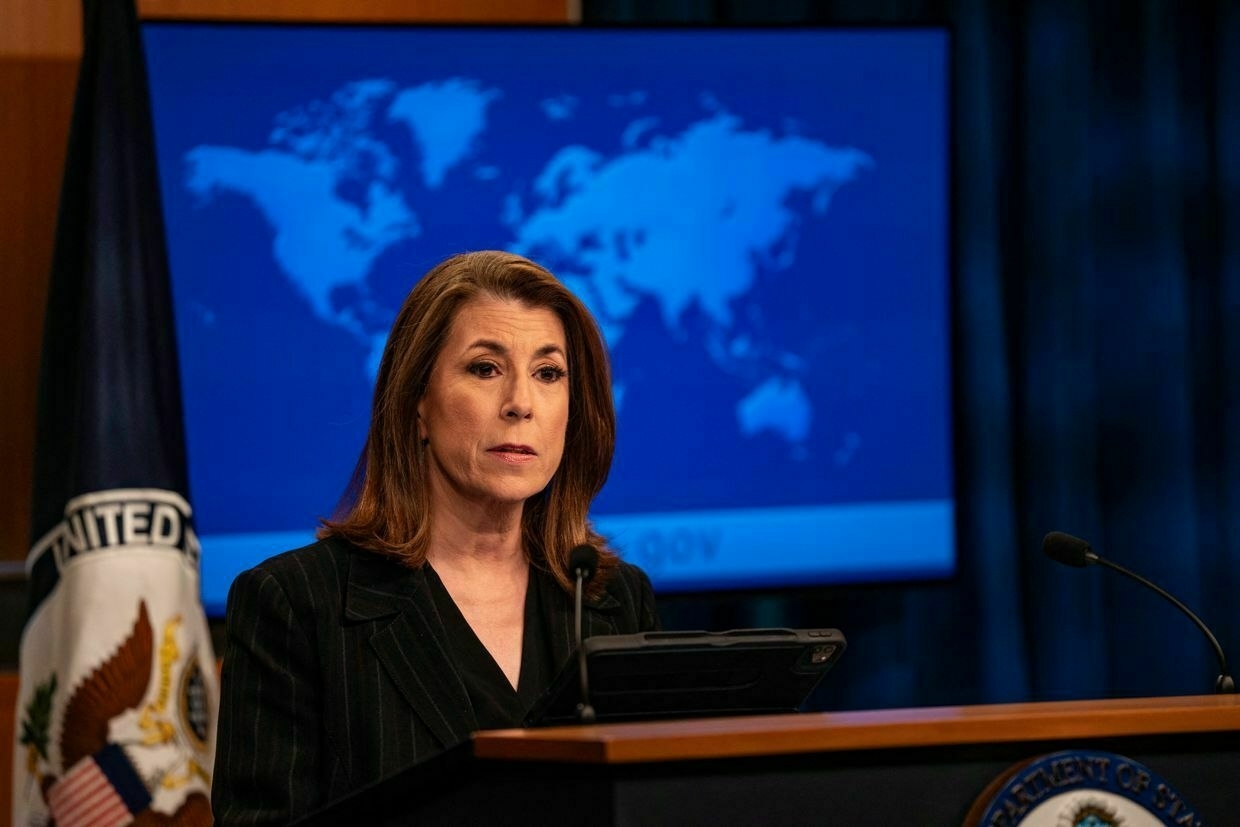
A ceasefire that would put a stop to the “meatgrinder” in Ukraine is the key condition for any future discussions on the Russia-Ukraine war, U.S. State Department spokesperson Tammy Bruce told journalists on April 10.
“It is a dynamic that will not be solved militarily. It is a meat grinder,” Bruce said at a press briefing.
“There is nothing else (that) can be discussed for the outcome until the shooting and the killing stops."
The comments came the same day as U.S. and Russian delegates met in Istanbul to discuss embassy operations in a meeting the State Department described as “constructive.”
Also on April 10, the two countries carried out a prisoner exchange, with Russia releasing U.S.-Russian national Ksenia Karelina in exchange for German-Russian citizen Artur Petrov.
U.S. President Donald Trump’s effort to broker a ceasefire in Ukraine has been accompanied by the resumption of direct diplomatic contact with Moscow after years of isolation imposed by his predecessor, ex-President Joe Biden.
Officials on both sides have also discussed venues for economic cooperation, with the Russian side calling for sanctions relief as part of the ceasefire talks.
Though Trump has repeatedly boasted about his warm relationship with Russian President Vladimir Putin, he seems to be growing frustrated with the Kremlin’s chief as his attempts to negotiate a truce stall.
Moscow rejected a full 30-day truce agreed upon by Kyiv and Washington on March 11 and repeatedly violated the pause on strikes against energy infrastructure penned on March 25.
The Kremlin claims it had adhered to the partial truce and, in turn, accused Ukraine of the same violations.
U.S. Secretary of State Marco Rubio implied last week that the U.S.’s patience with Russia may be running out, noting that Trump would not engage in “endless negotiations about negotiations."
“We will know soon enough, in a matter of weeks, not months, whether Russia is serious about peace or not. I hope they are,” Rubio said.
Bruce commented that Russia “needs to take (Rubio’s statement) seriously."
“But this is not going to go on for six months or a year or anything else. And the president has also made it clear we want diplomacy, but the fact is is that we’re watching and judging as this process continues,” she added.
The Trump administration has repeatedly threatened additional sanctions and tariffs against Russia unless it comes to the negotiating table and scales down attacks on Ukraine but is yet to take the step.
While exerting little pressure on Russia, Trump has taken a tougher stance on Ukraine, briefly pausing all military and intelligence support in March after publicly berating President Volodymyr Zelensky in the Oval Office.
Ukraine war latest: US ambassador to Ukraine to resignKey developments on April 10: * US ambassador to Ukraine to resign, State Department tells Kyiv Independent * ‘Before I got there, I had never held a weapon’ — Ukraine shows interrogation of Chinese POWs * Ukraine won’t accept any limits on its army in talks with Russia, official says * Russia…The Kyiv IndependentThe Kyiv Independent news desk
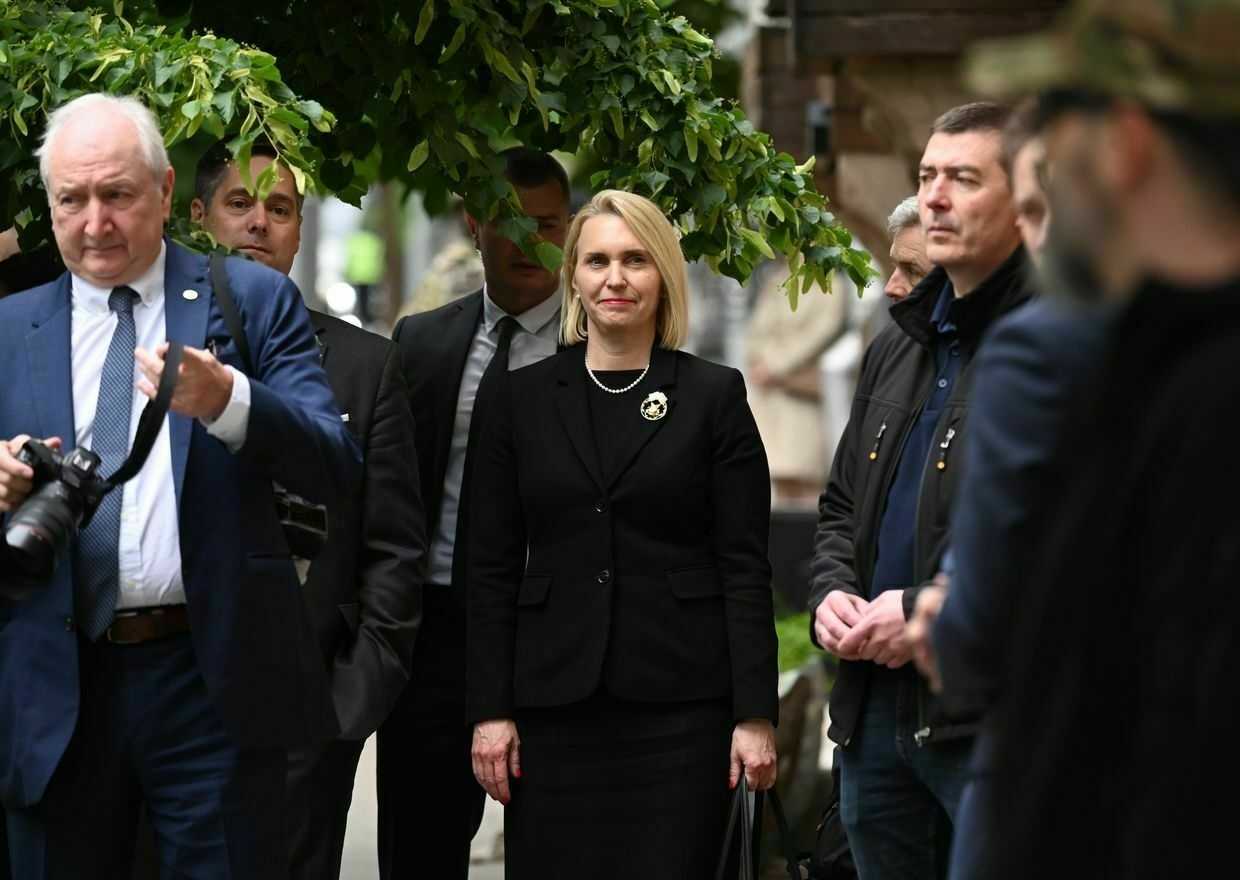
-
EU to support Ukraine's defense industry with over $2 billion from Russian assets
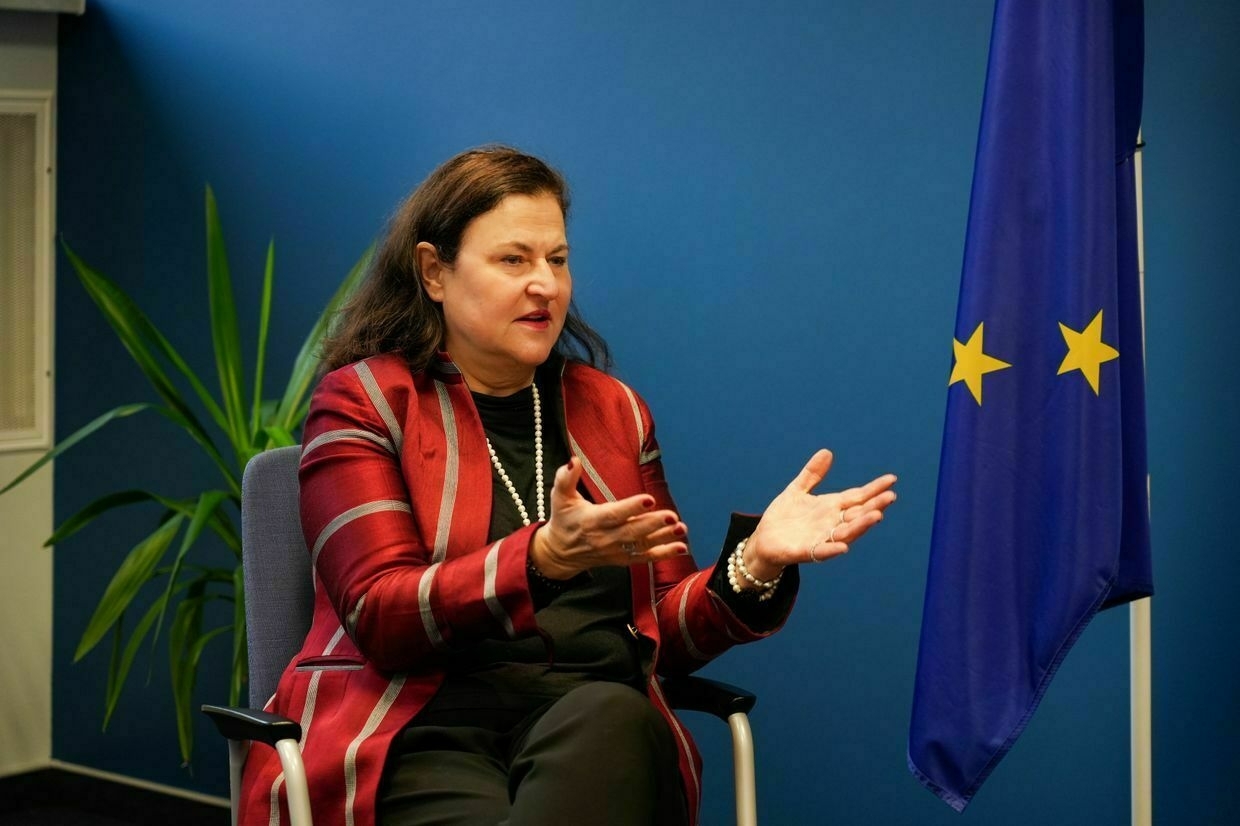
The European Union will dedicate 2.1 billion euros ($2.4 billion) in revenue generated from frozen assets of the Russian Central Bank to Ukraine’s defense industry, the EU’s Ambassador to Ukraine, Katarina Mathernova announced on April 10.
“I have some good news to share, as there have been concrete announcements yesterday — clear proof that the EU stands, and will continue to stand, firmly with Ukraine,” Mathernova said in a Facebook post.
“The EU will use €2.1 billion in revenues from the Russian frozen assets to give Ukraine the much needed air defenses and ammunition."
About 1 billion euros ($1.1 billion) of these funds will directly support Ukraine’s defense industry via the “Danish model,” according to the ambassador.
In 2024, Denmark became the first country to offer to donate arms to Ukraine via direct purchases from the Ukrainian defense industry – establishing the Danish model as a successful mechanism for boosting Ukraine’s defense capabilities.
Mathernova also noted that in August 2024, the EU invested 400 million euros in Ukraine’s defense industry.
Separately, on April 9, Prime Minister Denys Shmyhal announced that the EU is allocating another financial assistance tranche of 1 billion euros ($1.1 billion) as part of the G7 loan program for Ukraine.
‘Putin is pure evil’ — Trump’s spiritual advisor on Russia’s war against UkraineWhen U.S. President Donald Trump paused military aid to Ukraine last month, the man described as his “spiritual advisor,” Pastor Mark Burns, backed the decision. This week, Burns is urging him to send Kyiv more tanks, fighter jets, and air defense. “I now believe that supporting Ukraine is AmericaThe Kyiv IndependentChris York
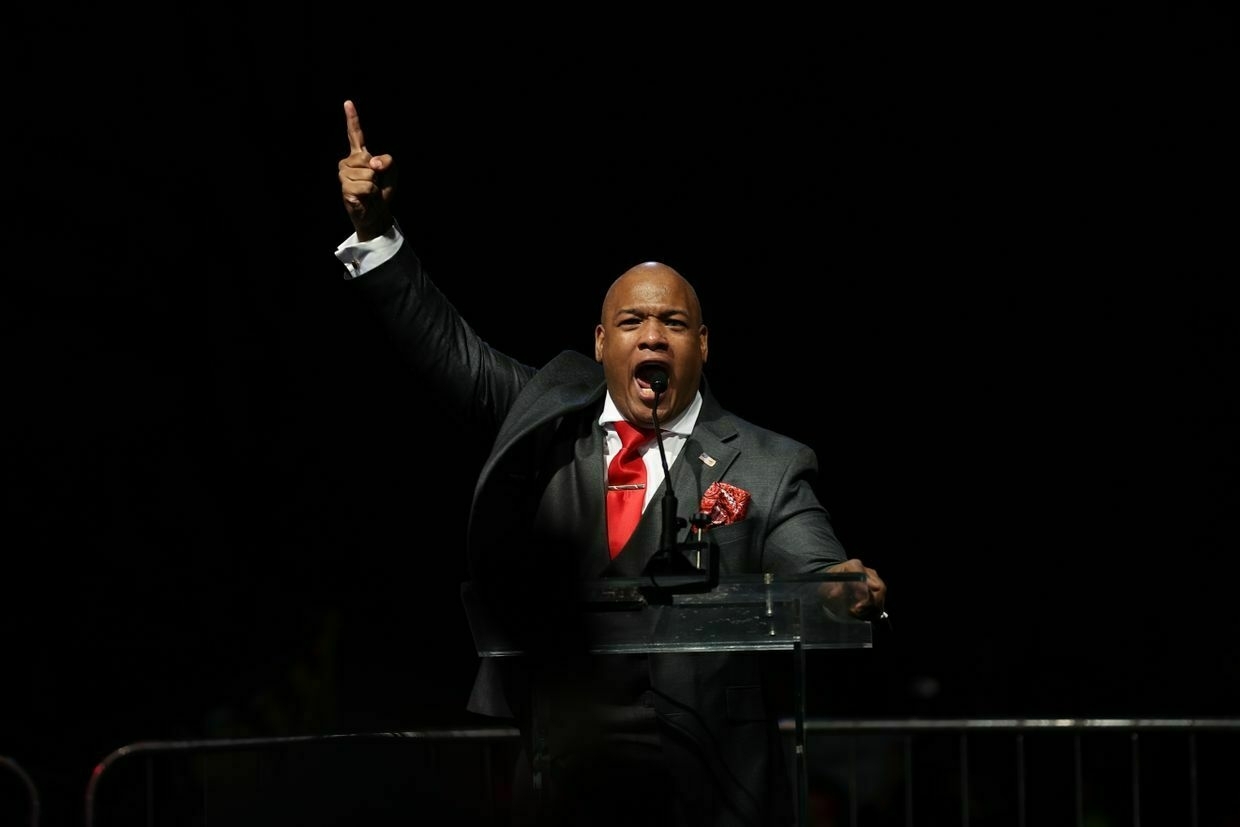
-
Ambassador Brink leaves post due to disagreements with Trump administration, FT reports
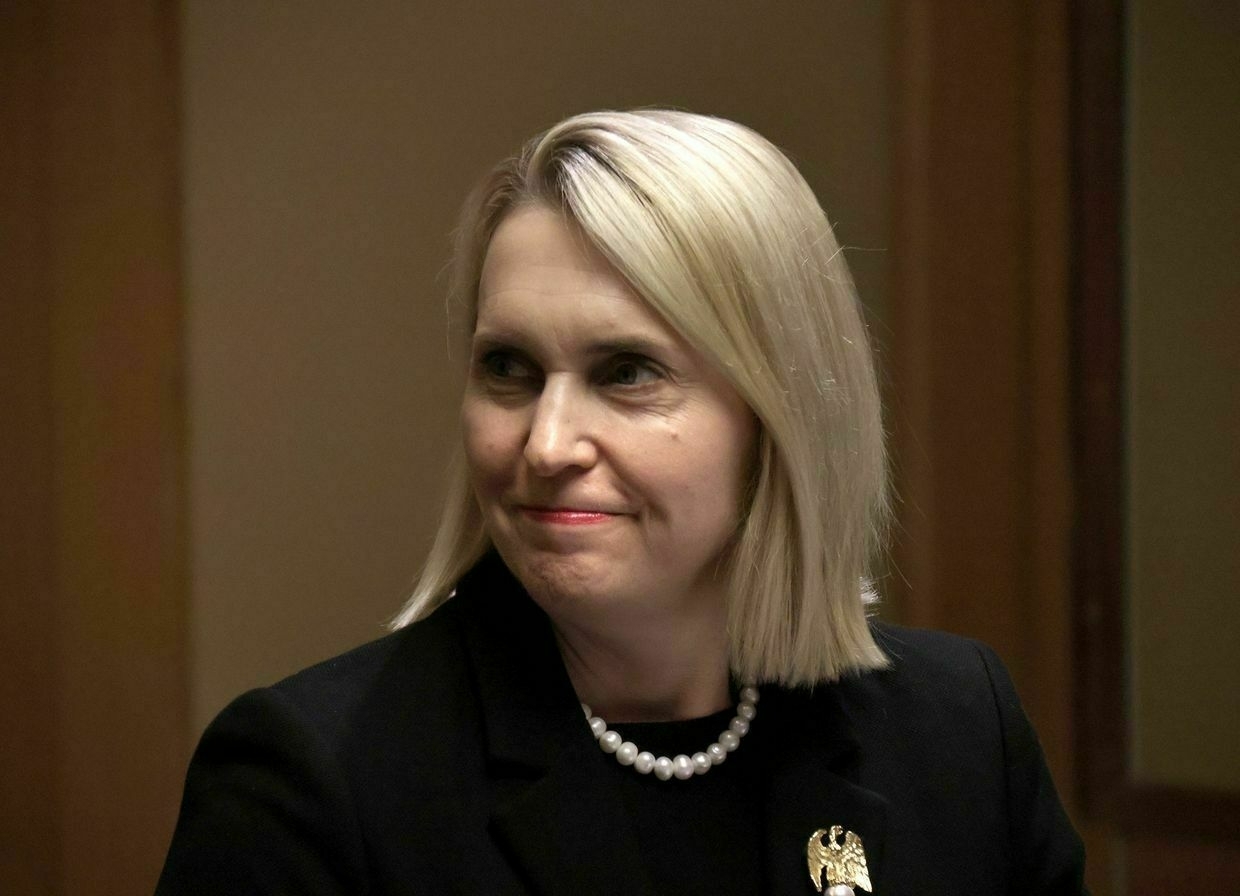
U.S. Ambassador to Ukraine Bridget Brink is leaving her post as a result of policy disagreements with the Trump administration, the Financial Times (FT) reported on April 10.
Earlier in the day, State Department Spokesperson Tammy Bruce announced that Brink intends to resign as ambassador after three years in the role.
According to the FT, people familiar with Brink’s decision said that the ambassador had come under increasing pressure from the Trump administration to support their Ukraine strategy.
Since taking office in January 2025, U.S. President Donald Trump has sought to normalize relations with Russia while simultaneously damaging ties with Ukraine and pushing for a peace deal between the two countries.
Commenting on Brink’s departure at press briefing on April 10, Bruce praised the ambassador’s “extraordinary performance” and reiterated that the U.S. is “working for the war to end."
Brink had served as ambassador for more than three years, overseeing U.S.-Ukrainian relations throughout Russia’s full-scale invasion.
The ambassador’s resignation also comes amidst increasing tensions with President Volodymyr Zelensky.
Recently, Zelensky criticized Brink’s “weak reaction” to Russia’s attack on the Ukrainian city of Kryvyi Rih on April 4, taking issue with the ambassador’s refusal to denounce Russia for the deadly strike.
However, according to people to spoke to the Financial Times, Brink’s decision to leave was not influenced by her working relationship with Zelensky.
In her most recent post on X, Brink expressed her condolences to the “families and loved ones of those killed, including 9 children, in a Russian cluster missile attack in Kryvyi Rih on April 4,” and called for “a full ceasefire and a just and lasting peace."
Russia’s overnight attack on Mykolaiv injures 10The overnight drone strike against the regional center damaged several residential buildings and left 10 people injured, according to Mykolaiv Oblast Governor Vitalii Kim.The Kyiv IndependentOlena Goncharova
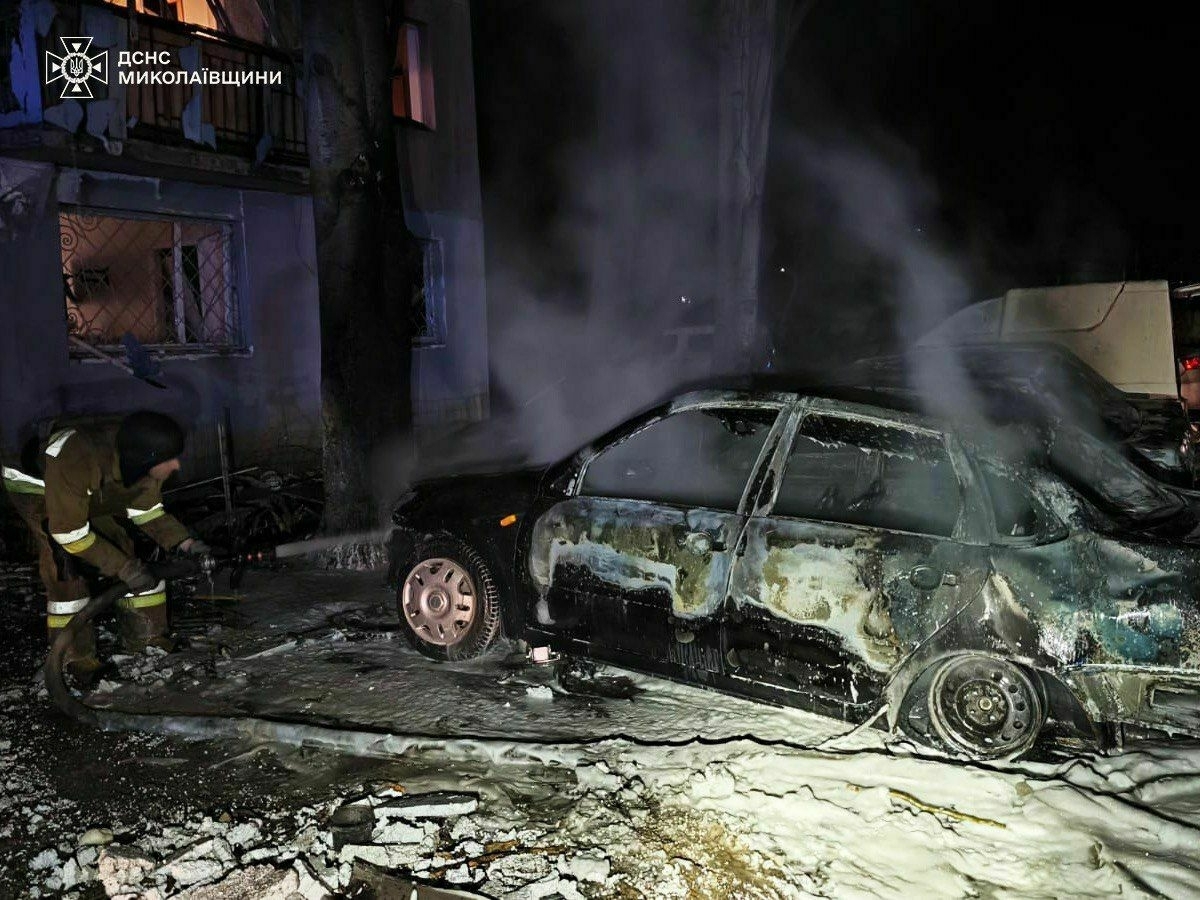
-
Putin will not be tried in absentia while president, Euronews reports
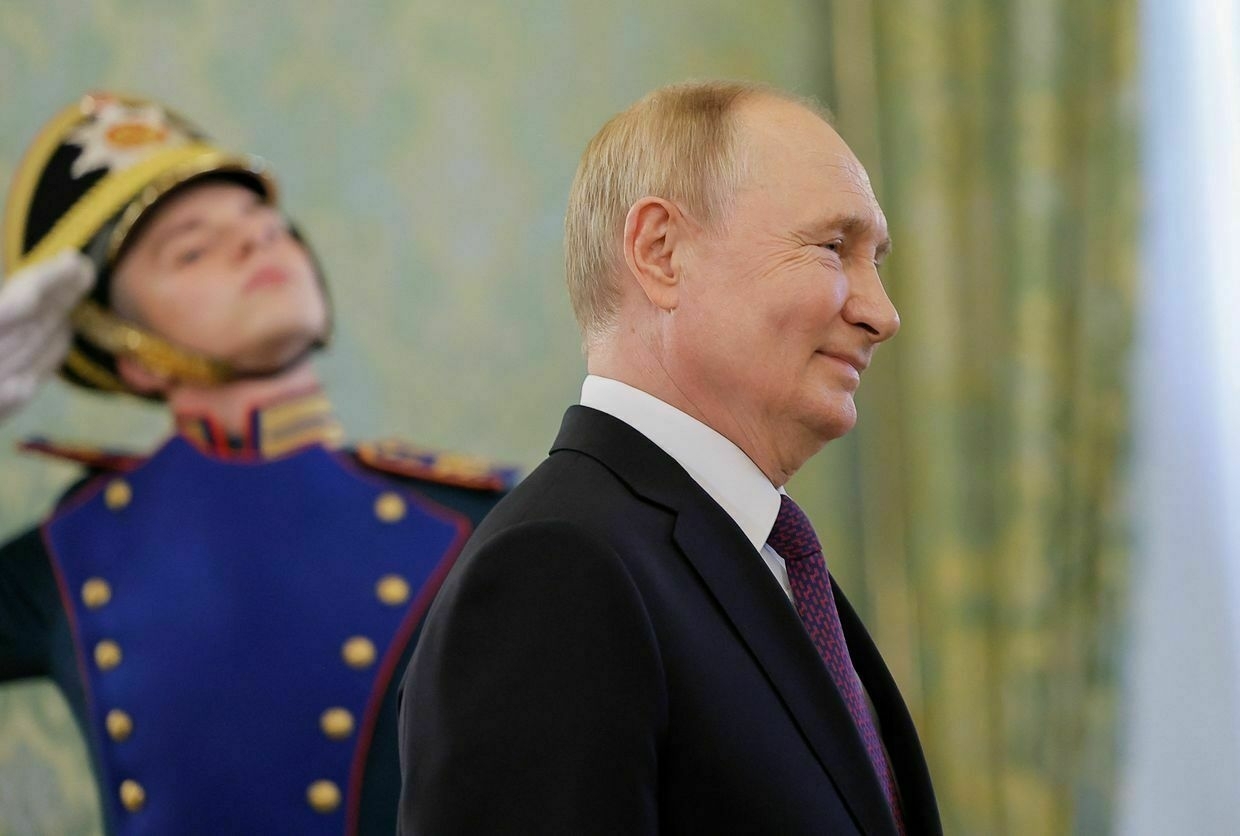
The Council of Europe’s special tribunal for the crime of aggression against Ukraine will not try Russian President Vladimir Putin in absentia for as long as he remains in office, Euronews reported on April 10, citing unnamed European officials.
The international tribunal, which is still in the process of being established, was first proposed by the Council of Europe following Russia’s full-scale invasion of Ukraine in 2022.
While the purpose of the tribunal is to investigate and prosecute Russia’s war crimes, Putin will not be tried in absentia, according to two European officials who spoke with Euronews.
The same condition will also apply to other high-level Russian officials, including Russian Prime Minister Mikhail Mishustin and Russian Foreign Minister Sergey Lavrov.
Putin, Mishushtin, and Lavrov will only be put on trial if they are physically present at the tribunal — an unlikely scenario, given Russia’s continued attacks, disregard for international law, and lack of cooperation with the West.
Putin and other Russian officials may be tried in absentia after they leave office, officials said.
According to ome European Union official who spoke with Euronews, the provision on trials in absentia was included as a “compromise” and is now a “done deal."
“At the end of the day, it’s about politics and bargaining,” the EU official said.
Since the start of Russia’s invasion, the international community has discussed different ways to address Russia’s crime of aggression in Ukraine.
In January 2023, a core group of countries and political bodies (including the European Parliament, NATO’s Parliamentary Assembly, and Council of Europe) met for the first time to discuss the establishment of a special tribunal.
In March 2025, the core group met for the 14th and final time to complete the necessary technical legal documents for the establishment of the special tribunal within the Council of Europe.
The legal documents include a bilateral agreement between Ukraine and the Council of Europe, the statute of the special tribunal, and an agreement detailing the special tribunal’s management. The provision on trials in absentia was included in these documents.
Kyiv is expected to sign the bilateral agreement on May 9.
‘Putin is pure evil’ — Trump’s spiritual advisor on Russia’s war against UkraineWhen U.S. President Donald Trump paused military aid to Ukraine last month, the man described as his “spiritual advisor,” Pastor Mark Burns, backed the decision. This week, Burns is urging him to send Kyiv more tanks, fighter jets, and air defense. “I now believe that supporting Ukraine is AmericaThe Kyiv IndependentChris York
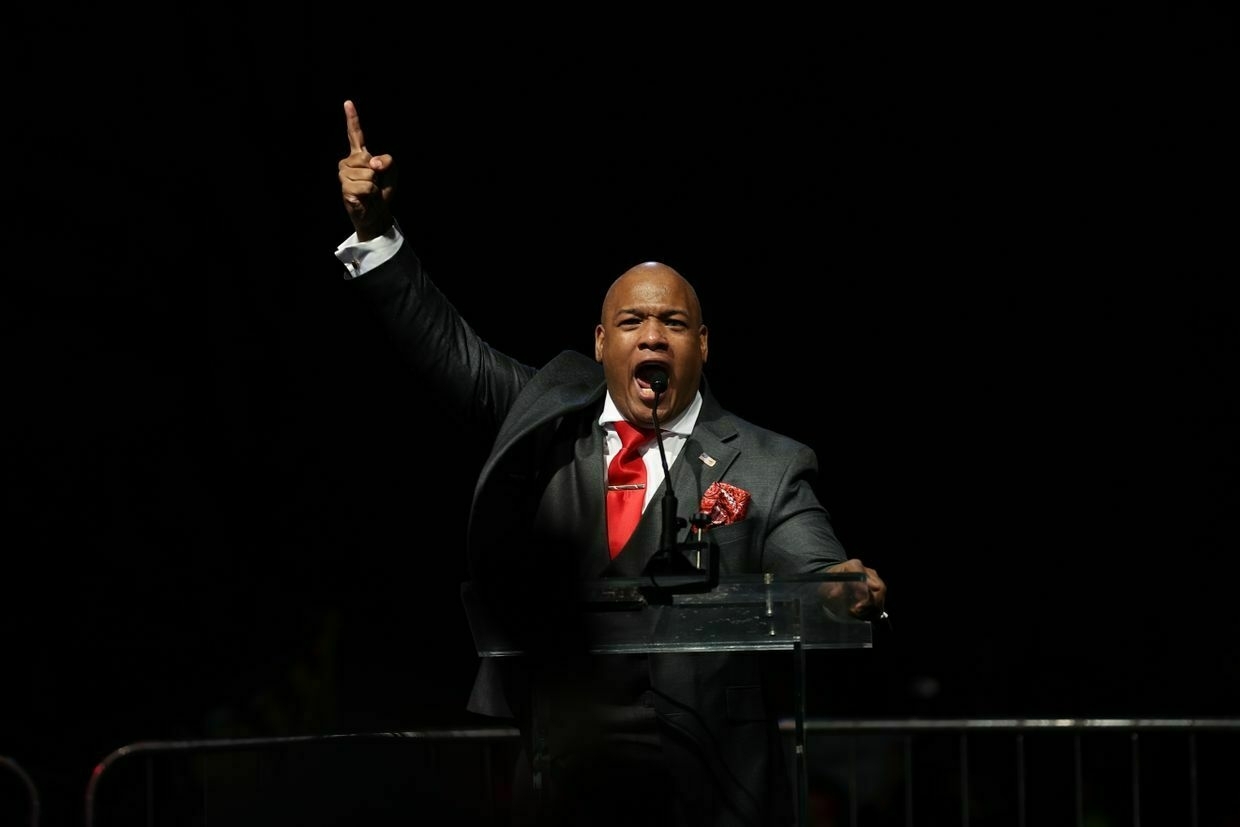
-
'Not a peacekeeping force' — UK defense minister clarifies role of coalition troops after summit
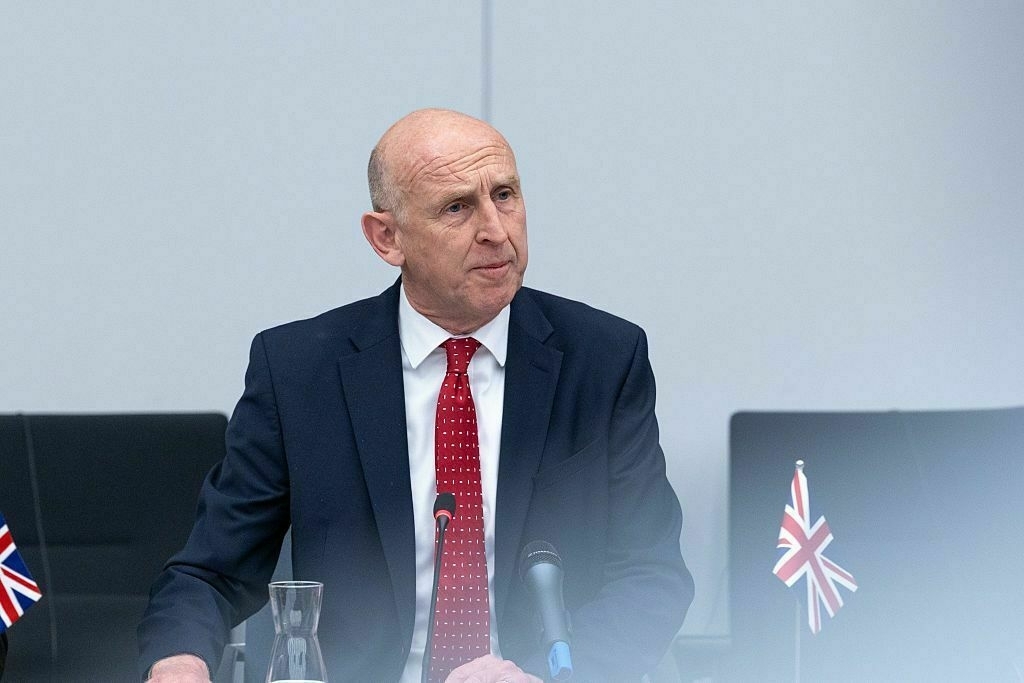
Troops deployed to Ukraine to monitor a potential ceasefire as part of the “coalition of the willing” will not act as a traditional peacekeepers, but as a support to Ukraine’s own forces, U.K. Defense Minister John Healy said on April 10.
The coalition, led by the U.K. and France, convened a summit of defense ministers at NATO Headquarters in Brussels on April 10. Representatives from 30 member countries discussed military planning and operational readiness in anticipation of a potential ceasefire.
While 15 countries have reportedly agreed to contribute troops to a “reassurance force,” Healy said that these units should not be described as peacekeepers.
“This is not a peacekeeping force that will separate the currently warring sides down the line of contact,” Healy told a press briefing in Brussels attended by a Kyiv Independent journalist.
“The most effective deterrence against renewed (Russian President Vladimir) Putin aggression, the best way of cementing a ceasefire is to strengthen the Ukrainian forces themselves."
Healy outlined the coalition’s four strategic objectives following the summit: a safe sky, a secure sea, peace on land, and a strong Ukrainian military. In the coming weeks, the defense ministers intend to accelerate the planning process in each specific domain.
Planning is complicated by the “known unknowns” surrounding the precise terms of a future peace settlement, Healy acknowledged. The U.S. has been involved in multiple rounds of ceasefire negotiations with Ukraine and Russia, but thus far Europe has been excluded from these discussions.
“In terms of the negotiations, this isn’t about negotiations,” Healy said.
“It’s about being ready for the point after the negotiations, when we get a ceasefire and the prospect of a longer term peace. For Ukraine, they know that their best deterrence and the best guarantor of a durable peace is their own armed forces strength.”
Healy said that fortifying Ukraine’s military is essential to securing a lasting peace, something U.S. President Donald Trump has repeatedly identified as a top priority of his administration.
“The U.S. are looking to broker a lasting peace,” Healy said.
“You won’t have a lasting and durable peace unless there is a strength of deterrence inherent in the Ukrainian forces and sufficient to say to Putin: you cannot use this as an opportunity to reboot and invade.”
Healy also urged Ukraine’s allies to put additional pressure on Putin to force him into meaningful negotiations.
Bloomberg reported on April 9 that the coalition’s efforts have been stymied by Washington’s refusal to provide concrete security guarantees to Ukraine. While Trump has ruled out U.S. participation in the “reassurance force,” France and the U.K. hope to secure U.S. airpower, intelligence support, or border surveillance as a backstop to the coalition’s efforts.
At least 37 countries, including European, Asian, and Commonwealth nations, have been involved in the coalition’s discussions. Members have pledged assistance in the form of troops, intelligence, weapons, and naval support.
Allied troops, which could number between 10,000 and 30,000, would likely work to secure strategic facilities in the rear while Ukrainian forces would continue to act as the main deterrent to Russian aggression.
“The future force that Ukraine wishes to establish and the support … that they will get from nations led by the U.K. and France, as part of the coalition of willing, will be essentially part of deterring Russia for the future and giving the Ukrainians their sovereignty and their control and the best guarantee of peace for the future,” Healy said.
Ukraine war latest: US ambassador to Ukraine to resignKey developments on April 10: * US ambassador to Ukraine to resign, State Department tells Kyiv Independent * ‘Before I got there, I had never held a weapon’ — Ukraine shows interrogation of Chinese POWs * Ukraine won’t accept any limits on its army in talks with Russia, official says * Russia…The Kyiv IndependentThe Kyiv Independent news desk
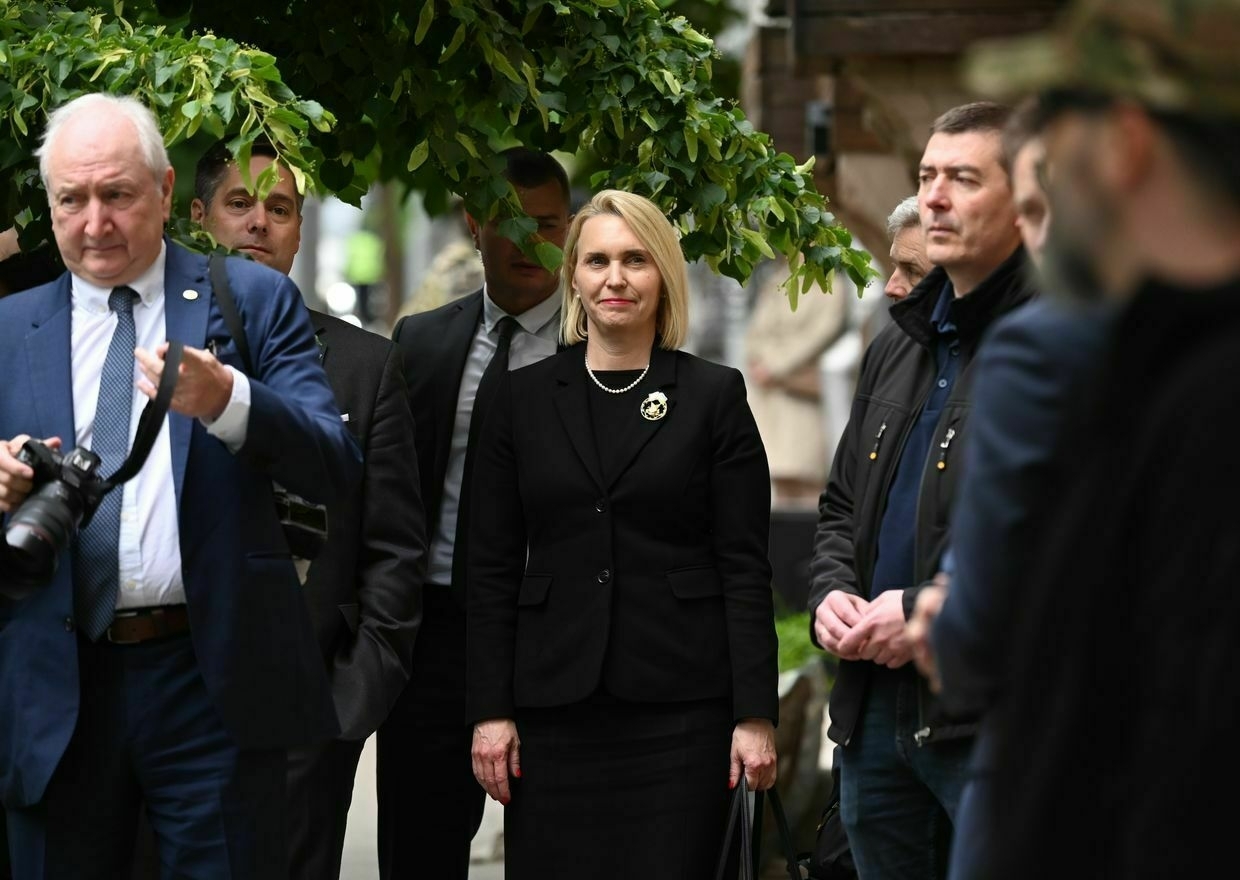
-
Ukraine war latest: US ambassador to Ukraine to resign
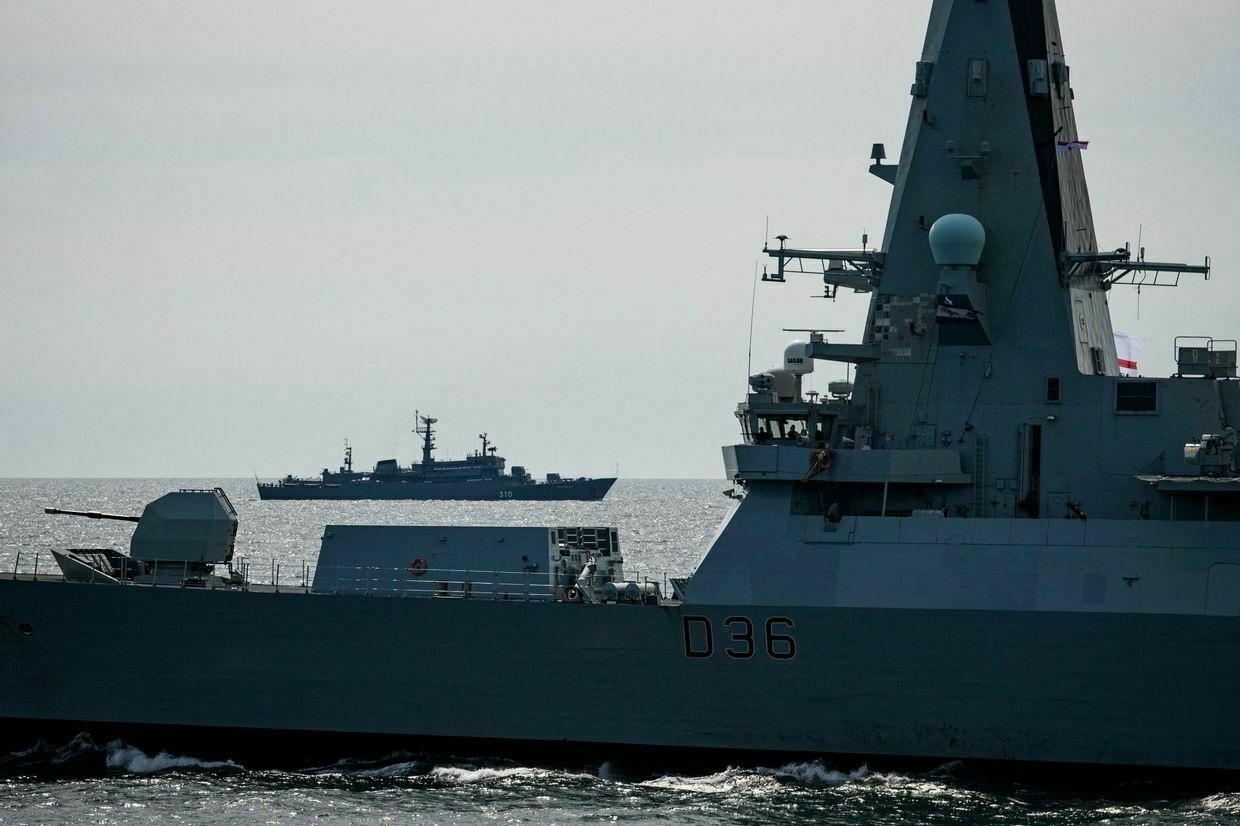
Key developments on April 10:
- US ambassador to Ukraine to resign, State Department tells Kyiv Independent
- ‘Before I got there, I had never held a weapon’ — Ukraine shows interrogation of Chinese POWs
- Ukraine won’t accept any limits on its army in talks with Russia, official says
- Russia frees woman jailed over charity gift to Ukraine in prisoner swap with US, WSJ reports
- US Ambassador to Ukraine to resign, State Department tells Kyiv Independent
- US senators submit bill to crack down on Russia’s shadow fleet
U.S. Ambassador to Ukraine Bridget Brink intends to resign from her post early, the State Department spokesperson told the Kyiv Independent on April 10.
“Ambassador Brink is stepping down after three years in Ukraine,” the spokesperson said.
U.S. Secretary of State Marco Rubio had initially declined Brink’s resignation in January, which she submitted as part of the routine turnover process between U.S. administrations.
The ambassador’s renewed decision to step down now comes during a critical moment in the U.S.-Ukraine relations.
After taking office, U.S. President Donald Trump has signaled a dramatic shift in U.S. foreign policy toward Ukraine, suspending over $1 billion in military aid and halting weapons shipments already en route in early March. The move followed a tense Oval Office meeting in which Trump and Vice President JD Vance criticized President Volodymyr Zelensky for pressing the U.S. on security guarantees.
Zelensky was dismissed from the White House without signing a key minerals deal, and Trump later declared him “not ready for peace."
Since the meeting, some U.S. officials and Republican lawmakers have escalated their criticism of Zelensky, with some even suggesting he should resign.
Trump has also voiced skepticism over continued U.S. support, comparing aid to Ukraine to “taking candy from a baby” and expressing frustration with Europe, which according to him, provided less than Washington. A statement which had been false.
While calling for an end to the war, he has omitted any reference to sanctions on Russia or meaningful security commitments for Ukraine. The Kremlin has welcomed Trump’s posture, saying it “largely aligns” with Russian interests. Trump’s recent attempts to broker a ceasefire between Ukraine and Russia have stalled, as Moscow rejected a full 30-day truce agreed upon by Kyiv and Washington and reportedly violated a partial ceasefire regarding strikes on energy infrastructure.
'Before I got there, I had never held a weapon' — Ukraine shows interrogation of Chinese POWsThe Security Service of Ukraine (SBU) carried out the first interrogation of two Chinese nationals captured while fighting for Russia in Ukraine, the SBU said on April 9.
Kyiv announced the capture of the two Chinese fighters fighting on Ukrainian territory on April 8. According to an intelligence document seen by the Kyiv Independent, at least 163 Chinese nationals are serving in Russia's Armed Forces.
One of the captives served in the 2nd Battalion of Russia's 157th Motorized Rifle Brigade and was captured near Tarasivka, while the other fought in the 1st Battalion of the 81st Motorized Rifle Brigade and was captured near Bilohorivka, according to the SBU.
The prisoners of war (POWs) have no combat wounds but are receiving all necessary medical care and are being held in appropriate conditions in accordance with international law, the SBU said. Both of them claim to have been captured during their first combat mission.
The captives include an unemployed man born in 1991 who was recruited by a Russian middleman in China and arrived in Moscow to sign a military contract in February 2025, according to the SBU's statement.
In an interrogation video released by President Volodymyr Zelensky, the captive introduced himself with the help of an interpreter as 34-year-old Wang Guangjun from Zhengzhou, Henan Province.
Wang said he surrendered in a group of three, including a stray Russian soldier. After they had surrendered, Russian forces dropped an explosive with gas on the group, nearly killing the Chinese fighter before a Ukrainian soldier dragged him out of the shelter and saved his life, he claimed.
The other man, born in 1998, arrived in Russia in December 2024, supposedly as a tourist. According to the SBU, he then applied for a military contract after seeing an online ad with a promised payment of 2 million rubles ($23,300).
The second man introduced himself in the interrogation video as Zhang Renbo from Jiangxi Province. He claimed to have never taken part in combat before his first mission and capture.
"It was my first deployment, my first combat mission," Zhang says through an interpreter.
"Prior to that, I had never participated in combat operations, and before I got there, I had never held a weapon."
Chinese national captured fighting for Russia reportedly paid $3,500 to recruiter, sought citizenshipThe man was among two Chinese nationals taken prisoner near the villages of Tarasivka and Bilohorivka during a clash between Ukrainian troops and a Russian assault group on April 8.The Kyiv IndependentTim Zadorozhnyy
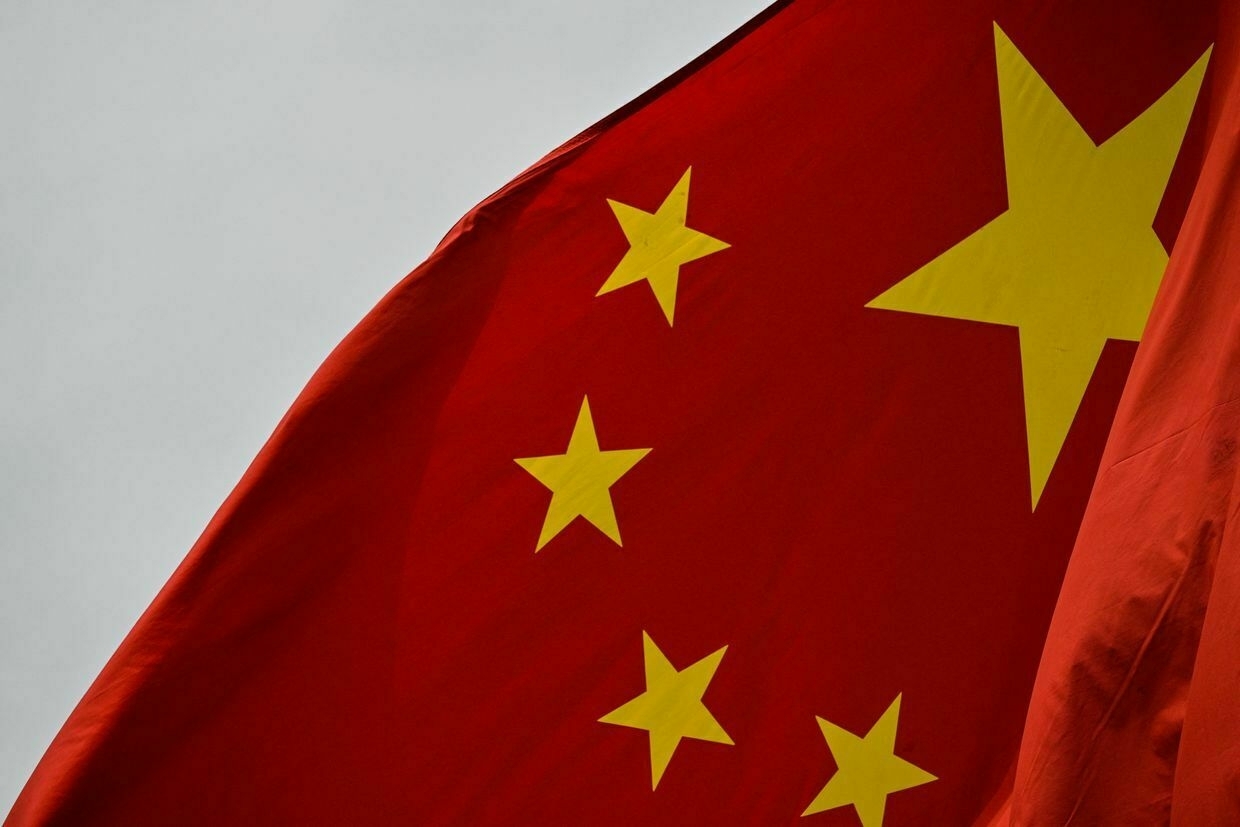
Following the capture, Zelensky instructed Foreign Minister Andrii Sybiha to contact Beijing. Ukraine summoned China's chargé d'affaires to demand an official explanation and express condemnation.
Beijing responded by saying it was "verifying" the claims, reiterating that Chinese citizens are prohibited from participating in foreign armed conflicts.
"Russia doesn't care who dies in this insane war, they only need the war to continue," Zelensky said on X.
"We all need—all partners, all fair-minded participants in international relations—to deprive Russia of the ability to continue the war, including through the use of people like these."
China, which portrays itself as a neutral party in the war, has become the Kremlin's largest supplier of dual-use goods essential for weapons manufacturing.
Unlike North Korean troops, who have fought on Russian soil, the Chinese nationals were captured on Ukrainian territory, marking a potential escalation in foreign involvement.
North Korea sent around 12,000 troops to Russia's Kursk Oblast in 2024 to reinforce Russian lines after a Ukrainian cross-border offensive. Kyiv has said it captured two North Korean soldiers in January, estimating 4,000 casualties among the deployed units.
China denies role in war against Ukraine, urges Kyiv to temper rhetoric“The Chinese government always asks Chinese nationals to stay away from areas of armed conflict, avoid any form of involvement in armed conflicts, and in particular avoid participation in any party’s military operations,” Chinese Foreign Ministry spokesperson Lin Jian said.The Kyiv IndependentKateryna Denisova
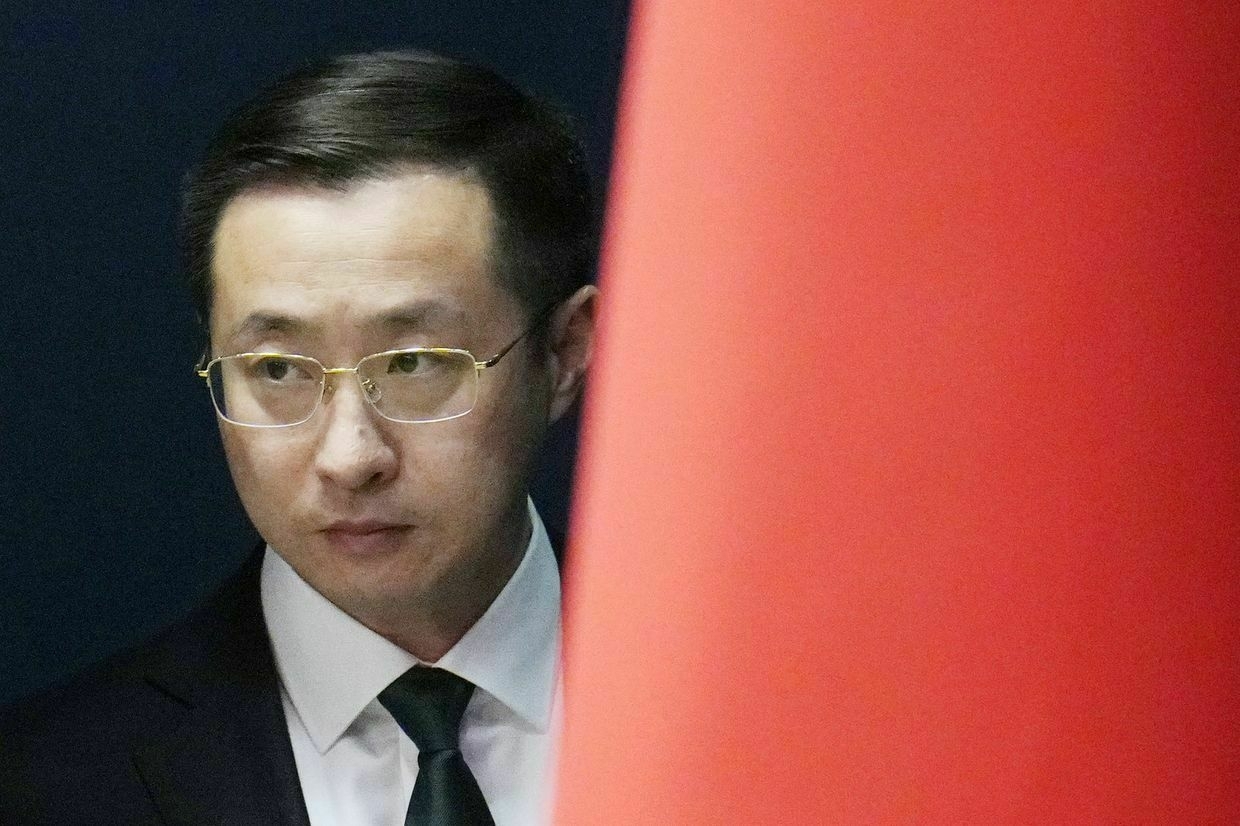
Ukraine won't accept any limits on its army in talks with Russia, official saysUkraine will not agree to any restrictions on its armed forces' size or combat readiness as part of negotiations with Russia, President Volodymyr Zelensky's Deputy Chief of Staff Pavlo Palisa told Reuters in an interview published on April 10.
"This is a principled position of Ukraine — no one, and certainly not the aggressor country Russia, will dictate to Ukraine what kind of armed forces Ukraine should have," he said.
The well-trained Ukrainian military remains the strongest safeguard against future Russian aggression, the official reiterated.
"I can guess what the Russian Federation is guided by — maybe they want to prepare, to make it easier for themselves in the future, but no. Our task is to learn the lessons (of the past) well," he said.
Kyiv has formally communicated its stance to Washington, according to Palisa.
The remarks come amid a fragile partial ceasefire covering strikes on energy infrastructure and the Black Sea, brokered in U.S.-mediated talks in Saudi Arabia on March 11.
Kyiv had agreed to a full 30-day ceasefire, but Moscow rejected the proposal on March 13 unless it included restrictions on Ukraine's military and an end to foreign military aid.
Russian President Vladimir Putin reportedly remains unwilling to compromise in peace talks, complicating U.S. President Donald Trump's efforts to secure a settlement.
President Volodymyr Zelensky said on April 9 that the U.S. would hold further ceasefire negotiations with Ukraine and Russia in separate meetings in the coming weeks.
"I believe that certain time limits will provide opportunities to put pressure on Russia. If you have a ceasefire for an unclear period — it is a frozen conflict," the president said.
Trump, who has taken on a mediation role, said on April 7 he was "not happy" with Russia's intensified bombardments across Ukraine.
NBC News reported on March 30 that Trump was "pissed off" at Putin's personal animosity toward Zelensky, while the Telegraph wrote on March 23 that he was increasingly angry over Russia's refusal to de-escalate the war.
Despite expressing frustration, Trump has so far avoided imposing any major sanctions or taking punitive action against Moscow.
‘Putin is pure evil’ — Trump’s spiritual advisor on Russia’s war against UkraineWhen U.S. President Donald Trump paused military aid to Ukraine last month, the man described as his “spiritual advisor,” Pastor Mark Burns, backed the decision. This week, Burns is urging him to send Kyiv more tanks, fighter jets, and air defense. “I now believe that supporting Ukraine is AmericaThe Kyiv IndependentChris York
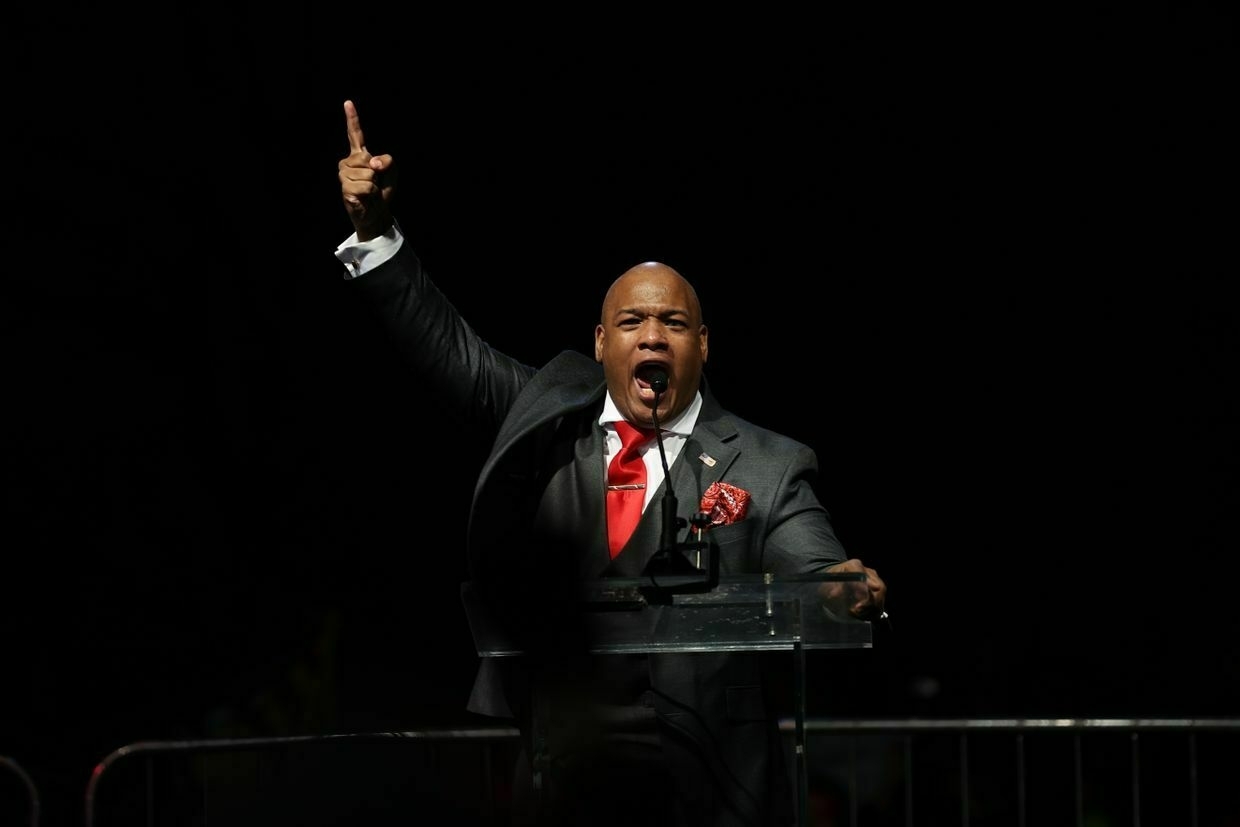
Russia frees woman jailed over charity gift to Ukraine in prisoner swap with US, WSJ reportsRussia and the United States held a prisoner exchange in Abu Dhabi on April 10, the Wall Street Journal (WSJ) reported, just as the two countries' officials were meeting for diplomatic talks in Istanbul.
Moscow released Ksenia Karelina, a U.S.-Russian dual national accused of treason for allegedly donating $51.80 to the nonprofit organization Razom for Ukraine, the WSJ wrote. Last year, she was sentenced to 12 years in prison for what Russian authorities presented as funding the Ukrainian Armed Forces.
In exchange, Washington reportedly freed Artur Petrov, a German-Russian dual citizen who was arrested in 2023 in Cyprus at the request of the U.S. for allegedly exporting sensitive microelectronics.
"American Ksenia Karelina is on a plane back home to the United States," U.S. Secretary of State Marco Rubio said on social media.
Rubio attributed her release from Russian detention to U.S. President Donald Trump, adding that Trump "will continue to work for the release of all Americans."
"The exchange shows the importance of keeping lines of communication open with Russia, despite the deep challenges in our bilateral relationship," a CIA spokesperson said, the WSJ reported.
CIA Director John Ratcliffe and a senior Russian intelligence official negotiated the swap, an undisclosed CIA official told the WSJ.
Ratcliffe was present at the Abu Dhabi airport where the exchange took place, according to the newspaper's source.
This is the second prisoner release negotiated between the U.S. and Russia since Trump took office. Moscow released Marc Fogel, a U.S. schoolteacher who was jailed in Russia on drug charges, in February.
While U.S. officials have not said what Russia was gaining in exchange for Fogel's release, U.S. National Security Adviser Mike Waltz said the deal was a sign that Trump was making progress in his attempts to broker a peace deal between Russia and Ukraine.
After taking office, Trump brought a major shift in the U.S.'s foreign policy, with Moscow praising his efforts to restore bilateral relations despite Russia's ongoing full-scale war against Ukraine. Since February, the U.S. and Russia have held several rounds of talks, with one of them taking place on April 10 in Istanbul.
Russia has arrested many U.S. nationals since the start of the full-scale war in Ukraine, with several Americans now serving lengthy sentences or awaiting trial. Under former President Joe Biden, the White House accused Moscow of orchestrating the arrests in hopes of future prisoner swaps for Russians held in the U.S.
Trump didn’t impose tariffs on Russia but they might be wrecking its economy regardlessU.S. President Donald Trump has inadvertently hit Russia’s economy after his “Liberation Day” tariffs caused oil prices to drop drastically on April 7, with potentially massive ramifications for the Kremlin’s ability to fund its ongoing war in Ukraine. Russia has so far failed to agree to a fullThe Kyiv IndependentDominic Culverwell
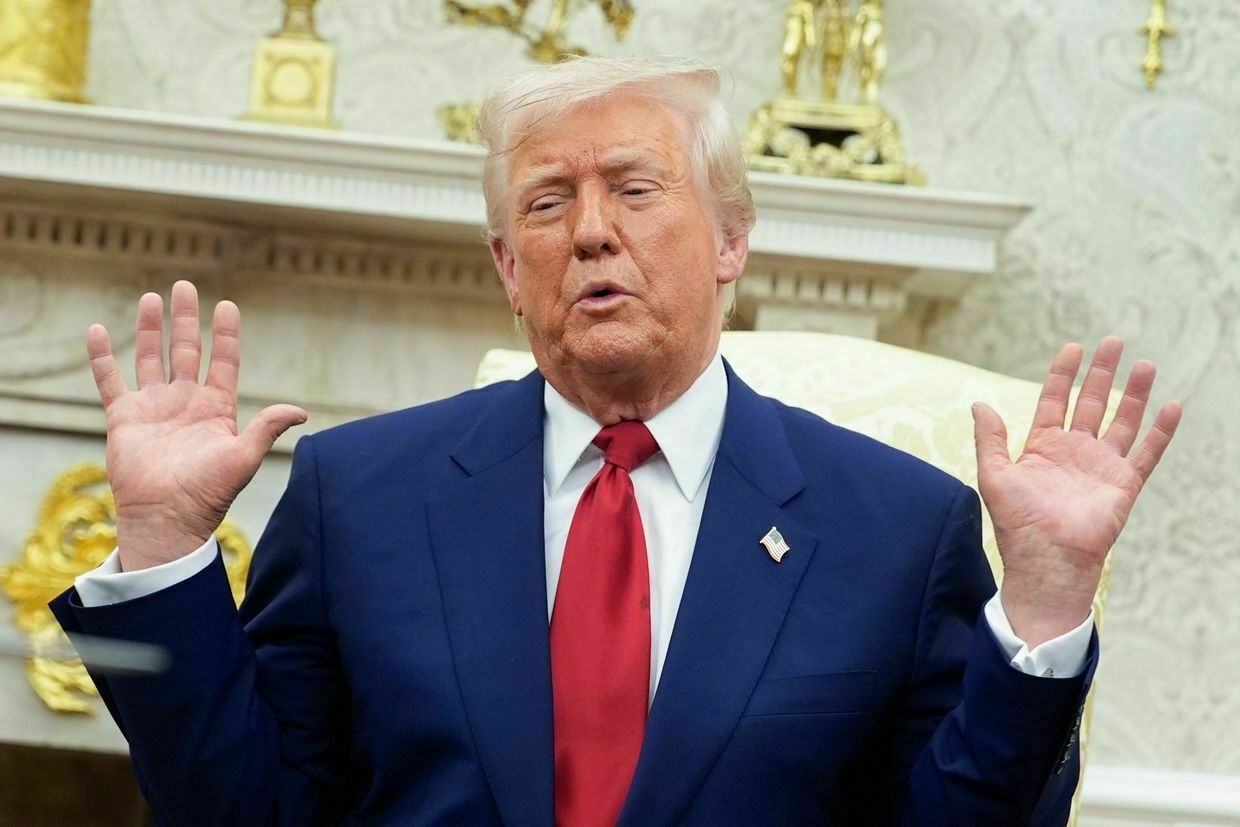
US senators submit bill to crack down on Russia's shadow fleetA bipartisan group of U.S. senators introduced legislation on April 9 to intensify the enforcement of sanctions against Russia's shadow fleet of oil tankers, seeking to crack down on oil shipments that fund Moscow's war against Ukraine, Reuters reported.
The proposed law would authorize U.S. authorities to confiscate oil cargoes transported by vessels blacklisted by the Treasury Department. Proceeds from the sale of the seized oil would be directed toward reducing the U.S. national debt.
Despite price caps and sanctions imposed by the G7 and EU, Russia has maintained significant oil exports by relying on a shadow fleet — vessels that often operate under obscure ownership structures, use flags of convenience, and evade Western oversight.
The bill calls for the creation of a $150 million Russian Sanctions Enforcement Fund within the Treasury Department to bolster efforts to monitor and disrupt illegal oil trade networks.
"Russia is continuing its malign actions by operating a 'ghost fleet' to evade U.S. sanctions, enrich its own war machine, and even aid Iranian oil smuggling," said Republican Senator Joni Ernst, one of the bill's sponsors.
"In addition to disrupting Moscow's malign efforts to undermine U.S. law, this bill will also arm our nation to utilize the seized assets and pay down our own debt," she added.
The proposed bill would also expand intelligence sharing to help track vessels involved in sanctions evasion and bolster law enforcement capabilities to dismantle Moscow's energy export networks.
President Volodymyr Zelensky announced on April 10 that Kyiv is preparing its own sanctions targeting Russia's shadow fleet.
"There is a corresponding justification from the special services; these are strong packages," Zelensky said. "These are about the shadow tanker fleet that Moscow uses to finance the war."
As of January, more than 200 tankers were under U.S. sanctions for facilitating the transport of Russian oil in violation of international restrictions.
The Biden administration's final sanctions package, introduced in early January, targeted 180 vessels — a fleet responsible for roughly half of Russia's offshore oil exports.
German authorities seized one such vessel, the Panama-flagged Eventin, in late March. The tanker was carrying approximately 100,000 tons of Russian oil, which was confiscated.
4 things you need to know about Victoria Spartz, the Ukrainian-born US lawmakerThis week a spotlight has once again been shone on Victoria Spartz, the Ukrainian-born Republican lawmaker who is not a stranger to controversy. Born in Chernihiv Oblast, she moved to the U.S. in 2000. She was elected to Congress three times, in 2020, 2022, and 2024, and represents Indiana’sThe Kyiv IndependentAnna Fratsyvir
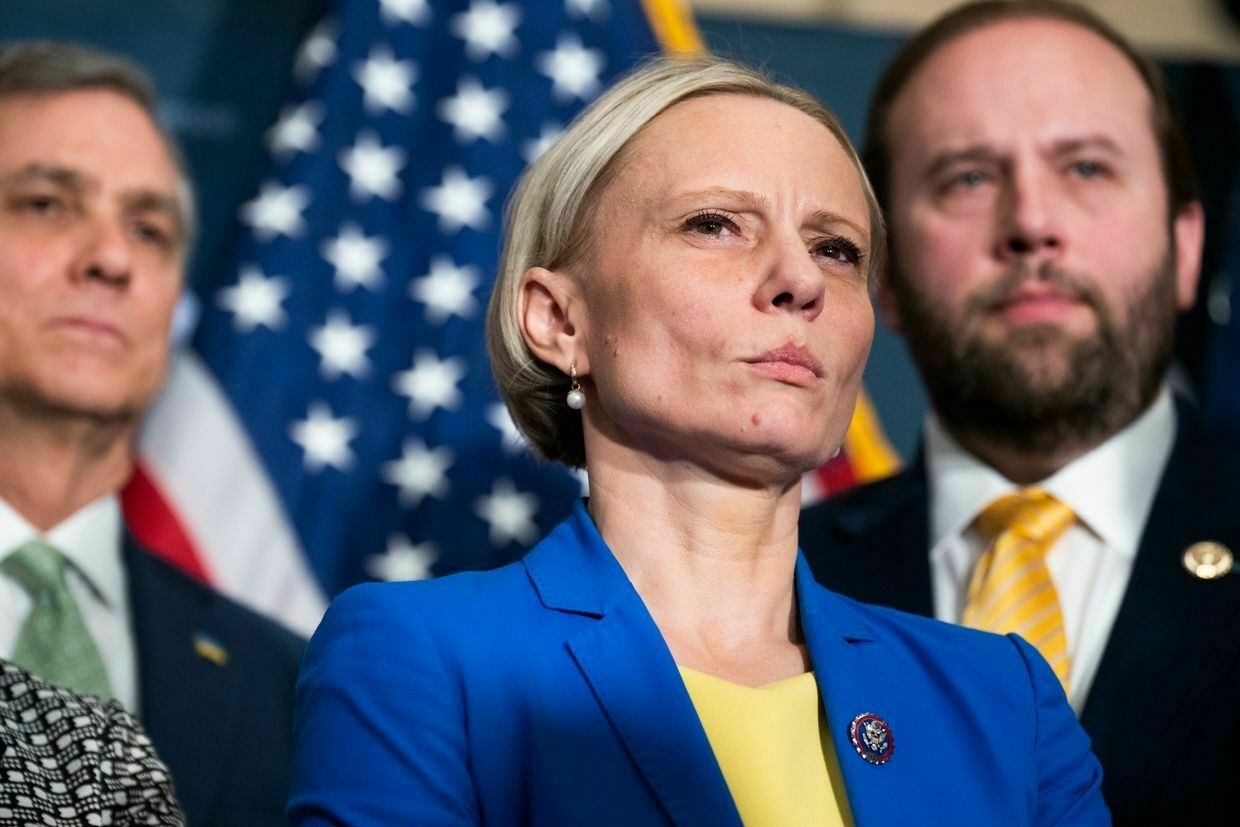
Note from the author:
Ukraine War Latest is put together by the Kyiv Independent news desk team, who keep you informed 24 hours a day, seven days a week. If you value our work and want to ensure we have the resources to continue, join the Kyiv Independent community.
-
Chinese POW says he doesn’t want to return to Russia, hopes to go back to China
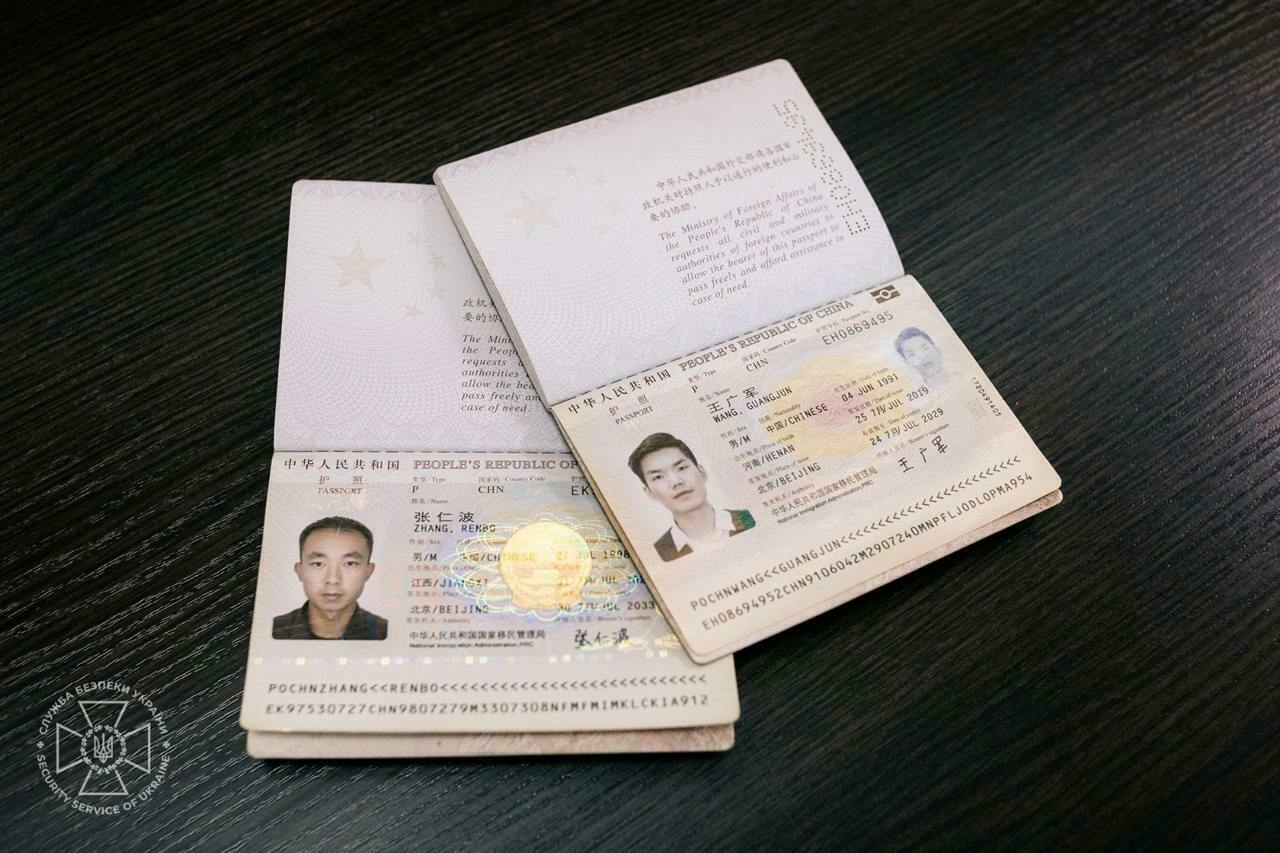
A Chinese soldier captured while fighting alongside Russian forces said he wants to return to China rather than go to Russia, according to a new interrogation video published on April 10 by President Volodymyr Zelensky.
Ukraine on April 8 announced the capture of two Chinese fighters operating with Russian units near the villages of Tarasivka and Bilohorivka in Donetsk Oblast. The Security Service of Ukraine (SBU) carried out its first interrogation of the prisoners on April 9.
In the latest video of the questioning, the Chinese national told the SBU that his unit was commanded by a Russian officer and described the conditions under which he was captured.
“When we hid in a wooden shelter, a drone attacked us and damaged my weapon,” the prisoner said. He identified his weapon as a Kalashnikov AK-74 and said he was accompanied by a Russian soldier during the attack.
The captured fighter also said that he was treated better in Ukrainian custody than during his time with Russian forces.
“Here in Ukraine they feed me better than in Russia, and treat me better. It is safer here,” he answered.
When asked about a possible prisoner exchange, the man said he did not want to return to Russia.
“I would prefer to go to China,” he said, adding that he had once contacted his parents but did not tell them where he was, to avoid causing them worry. The soldier also said he rarely had access to the internet.
The involvement of Chinese nationals in Russia’s war against Ukraine appears to be part of a “systemic” recruitment effort, Zelensky said on April 10.
The SBU is continuing its investigation into the circumstances surrounding the Chinese nationals' presence in Russian military units. According to a Ukrainian intelligence document obtained by the Kyiv Independent on April 9, at least 163 Chinese nationals are serving in Russia’s armed forces.
‘Putin is pure evil’ — Trump’s spiritual advisor on Russia’s war against UkraineWhen U.S. President Donald Trump paused military aid to Ukraine last month, the man described as his “spiritual advisor,” Pastor Mark Burns, backed the decision. This week, Burns is urging him to send Kyiv more tanks, fighter jets, and air defense. “I now believe that supporting Ukraine is AmericaThe Kyiv IndependentChris York
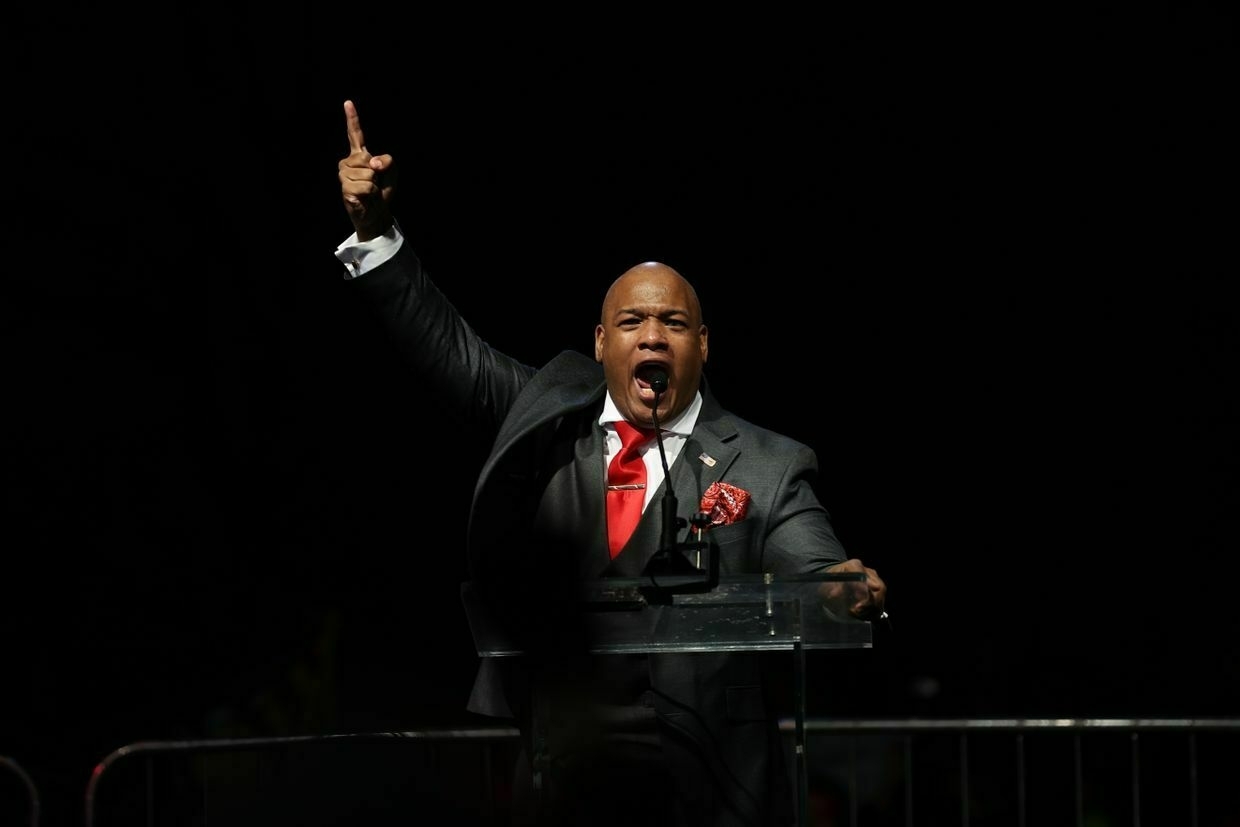
-
US senators submit bill to crack down on Russia's shadow fleet
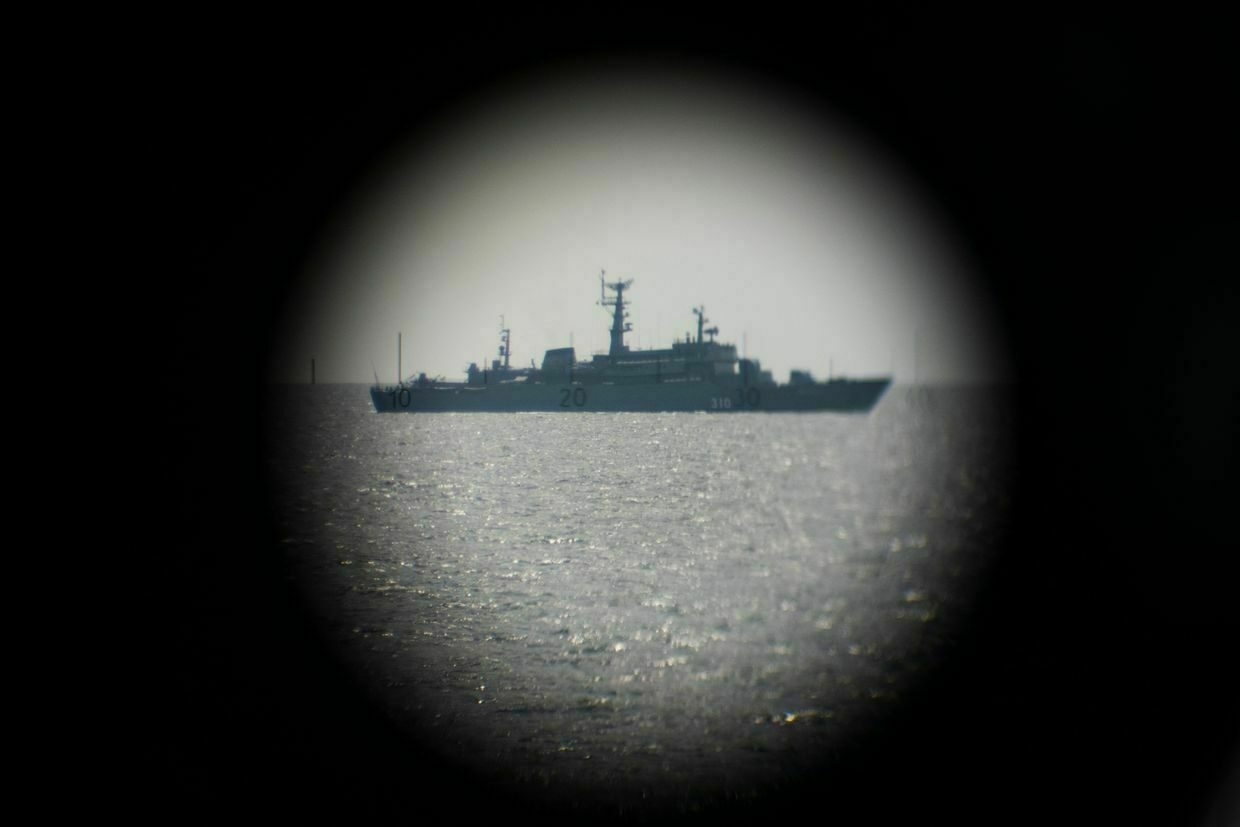
A bipartisan group of U.S. senators introduced legislation on April 9 to intensify the enforcement of sanctions against Russia’s shadow fleet of oil tankers, seeking to crack down on oil shipments that fund Moscow’s war against Ukraine, Reuters reported.
The proposed law would authorize U.S. authorities to confiscate oil cargoes transported by vessels blacklisted by the Treasury Department. Proceeds from the sale of the seized oil would be directed toward reducing the U.S. national debt.
Despite price caps and sanctions imposed by the G7 and EU, Russia has maintained significant oil exports by relying on a shadow fleet — vessels that often operate under obscure ownership structures, use flags of convenience, and evade Western oversight.
The bill calls for the creation of a $150 million Russian Sanctions Enforcement Fund within the Treasury Department to bolster efforts to monitor and disrupt illegal oil trade networks.
"Russia is continuing its malign actions by operating a ‘ghost fleet’ to evade U.S. sanctions, enrich its own war machine, and even aid Iranian oil smuggling," said Republican Senator Joni Ernst, one of the bill’s sponsors.
“In addition to disrupting Moscow’s malign efforts to undermine U.S. law, this bill will also arm our nation to utilize the seized assets and pay down our own debt,” she added.
The proposed bill would also expand intelligence sharing to help track vessels involved in sanctions evasion and bolster law enforcement capabilities to dismantle Moscow’s energy export networks.
‘Putin is pure evil’ — Trump’s spiritual advisor on Russia’s war against UkraineWhen U.S. President Donald Trump paused military aid to Ukraine last month, the man described as his “spiritual advisor,” Pastor Mark Burns, backed the decision. This week, Burns is urging him to send Kyiv more tanks, fighter jets, and air defense. “I now believe that supporting Ukraine is AmericaThe Kyiv IndependentChris York
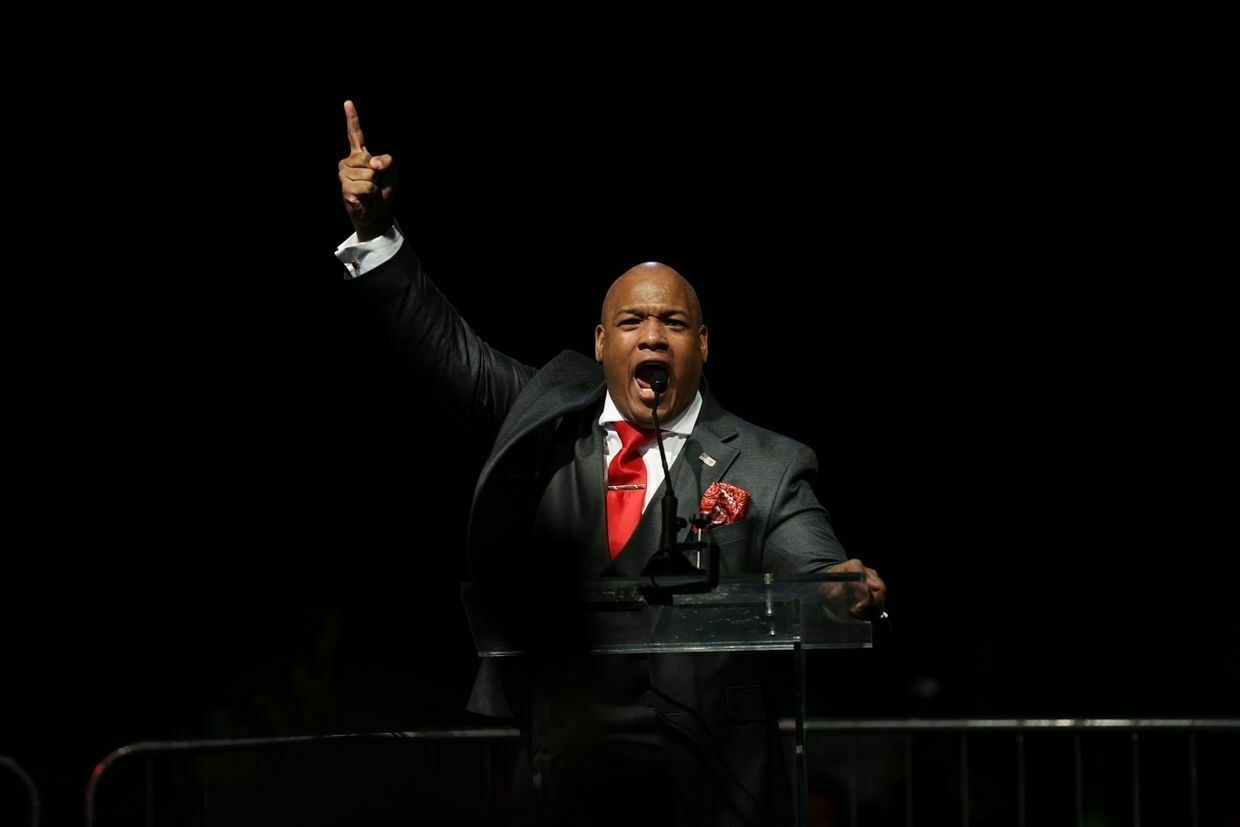
President Volodymyr Zelensky announced on April 10 that Kyiv is preparing its own sanctions targeting Russia’s shadow fleet.
“There is a corresponding justification from the special services; these are strong packages,” Zelensky said. “These are about the shadow tanker fleet that Moscow uses to finance the war."
As of January, more than 200 tankers were under U.S. sanctions for facilitating the transport of Russian oil in violation of international restrictions.
The Biden administration’s final sanctions package, introduced in early January, targeted 180 vessels — a fleet responsible for roughly half of Russia’s offshore oil exports.
German authorities seized one such vessel, the Panama-flagged Eventin, in late March. The tanker was carrying approximately 100,000 tons of Russian oil, which was confiscated.
4 things you need to know about Victoria Spartz, the Ukrainian-born US lawmakerThis week a spotlight has once again been shone on Victoria Spartz, the Ukrainian-born Republican lawmaker who is not a stranger to controversy. Born in Chernihiv Oblast, she moved to the U.S. in 2000. She was elected to Congress three times, in 2020, 2022, and 2024, and represents Indiana’sThe Kyiv IndependentAnna Fratsyvir
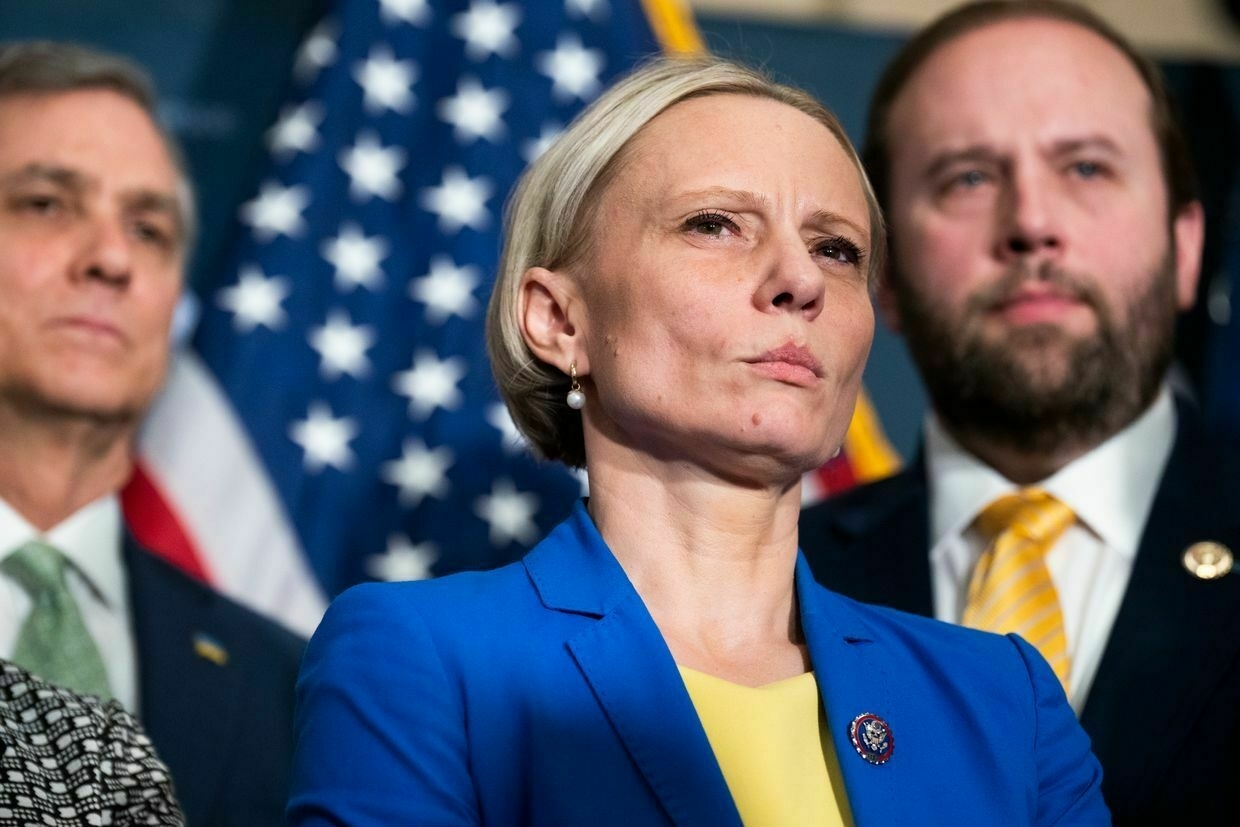
-
US Ambassador to Ukraine to resign, State Department tells Kyiv Independent
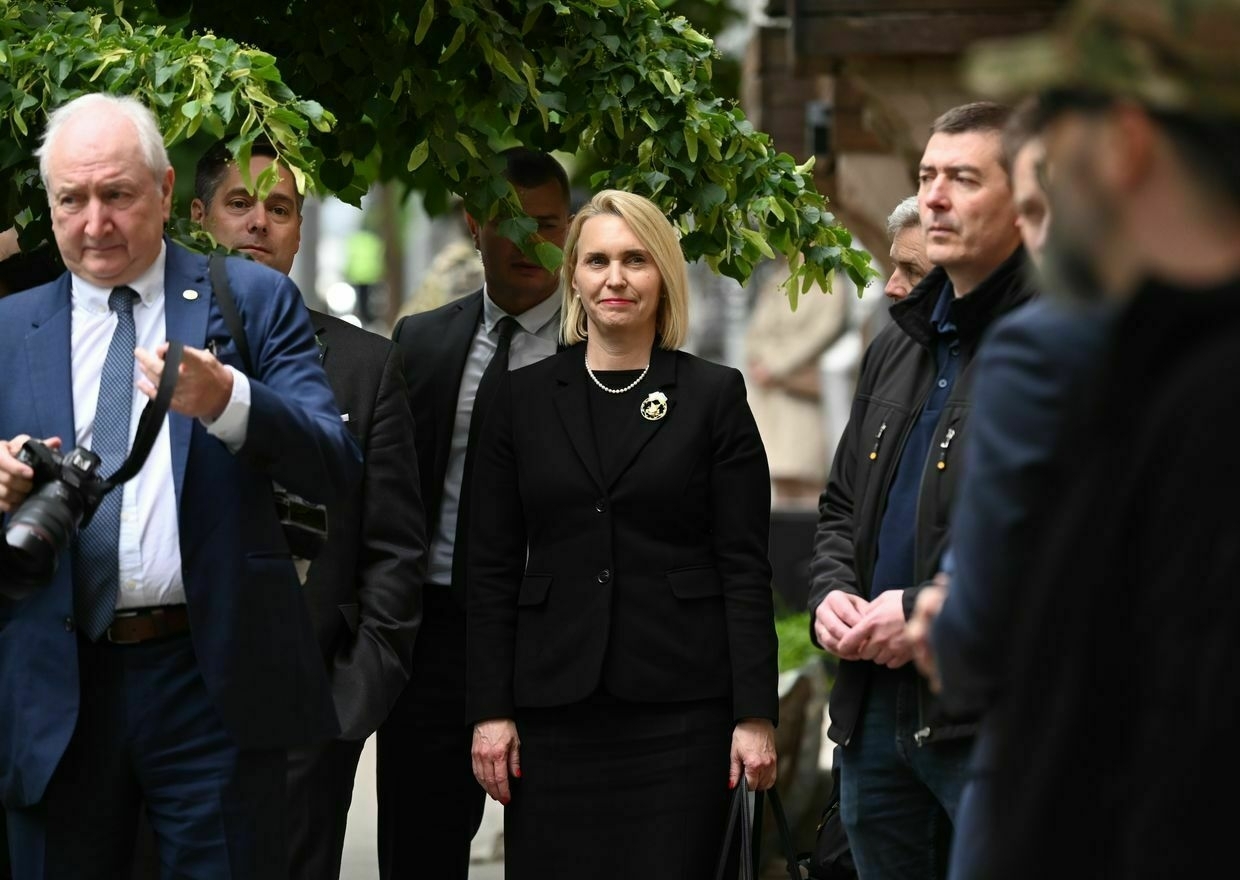
U.S. Ambassador to Ukraine Bridget Brink intends to resign from her post early, the State Department spokesperson told the Kyiv Independent.
“Ambassador Brink is stepping down after three years in Ukraine,” the spokesperson said.
U.S. Secretary of State Marco Rubio had initially declined Brink’s resignation in January, which she submitted as part of the routine turnover process between U.S. administrations.
The ambassador’s renewed decision to step down now comes during a critical moment in the U.S.-Ukraine relations.
After taking office, U.S. President Donald Trump has signaled a dramatic shift in U.S. foreign policy toward Ukraine, suspending over $1 billion in military aid and halting weapons shipments already en route in early March. The move followed a tense Oval Office meeting in which Trump and Vice President JD Vance criticized President Volodymyr Zelensky for pressing the U.S. on security guarantees.
Zelensky was dismissed from the White House without signing a key minerals deal, and Trump later declared him “not ready for peace."
Since the meeting, some U.S. officials and Republican lawmakers have escalated their criticism of Zelensky, with some even suggesting he should resign.
Trump has also voiced skepticism over continued U.S. support, comparing aid to Ukraine to “taking candy from a baby” and expressing frustration with Europe, which according to him, provided less than Washington. A statement which had been false.
While calling for an end to the war, he has omitted any reference to sanctions on Russia or meaningful security commitments for Ukraine. The Kremlin has welcomed Trump’s posture, saying it “largely aligns” with Russian interests. Trump’s recent attempts to broker a ceasefire between Ukraine and Russia have stalled, as Moscow rejected a full 30-day truce agreed upon by Kyiv and Washington and reportedly violated a partial ceasefire regarding strikes on energy infrastructure.
-
Russian troops kill 4 Ukrainian POWs in Zaporizhzhia Oblast, AP video shows
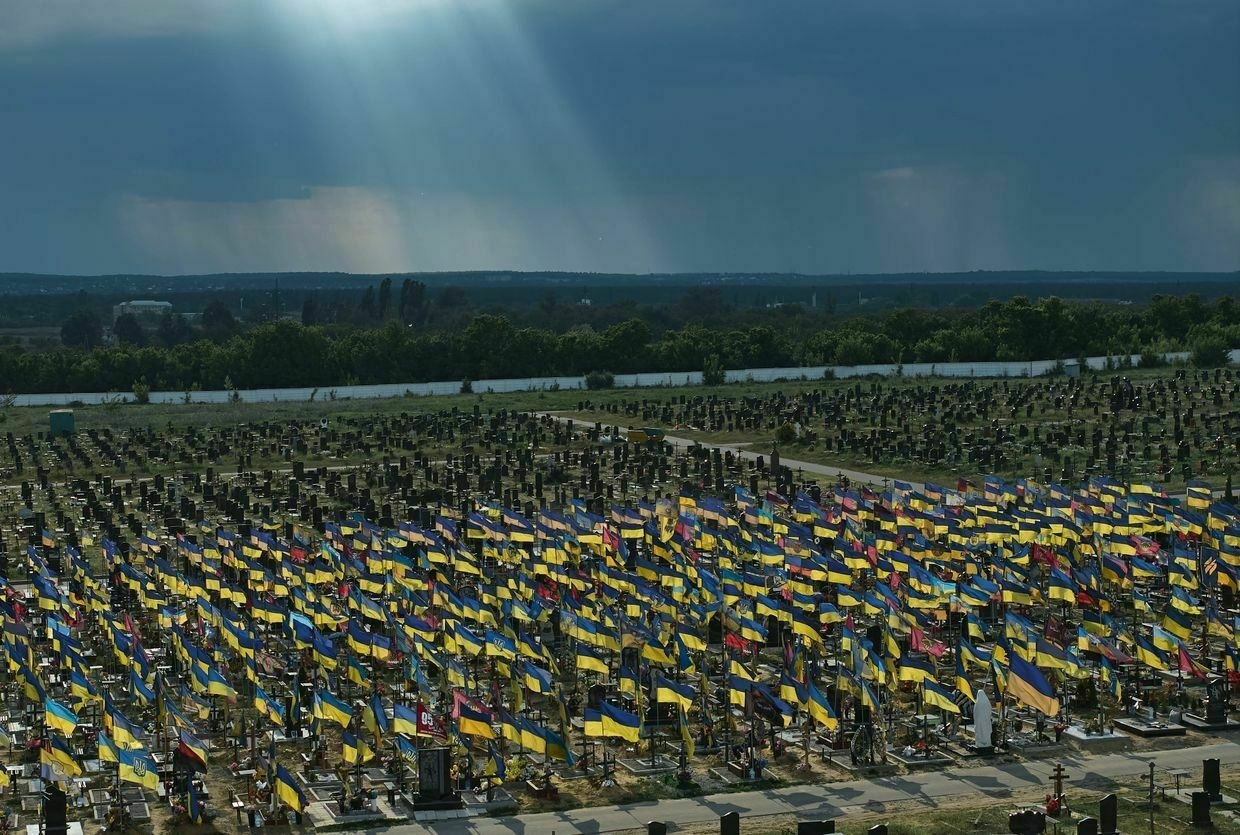
Russian forces have executed four Ukrainian prisoners of war near the village of Piatykhatky in Zaporizhzhia Oblast, drone footage published by the Associated Press on April 10 suggests.
In the video, the four seemingly unarmed POWs are seen emerging from a ruined building at gunpoint by Russian forces. One raises his hands in surrender before all four lie face down in the grass.
Russian soldiers, identifiable by insignia, then shoot each prisoner in the back, according to the footage shared by European military officials with the AP.
Ukraine’s Foreign Ministry spokesperson, Heorhii Tykhyi, condemned the execution as a war crime.
“Russian invaders execute four Ukrainian prisoners of war after they surrender. Such executions have become systemic, but each one is shocking in its brutality,” he posted on X.
Tykhyi said Ukraine expects the incident to be investigated, including by the International Criminal Court, and that all perpetrators must be brought to justice.
The Geneva Conventions prohibit the execution of POWs under any circumstances, requiring that they be treated with dignity and protected from violence and intimidation. Violations constitute war crimes under international law.
Russia has been repeatedly accused of murdering captured Ukrainian soldiers during its full-scale invasion. As of mid-December 2024, Ukrainian authorities had documented the execution of at least 177 POWs.
‘Putin is pure evil’ — Trump’s spiritual advisor on Russia’s war against UkraineWhen U.S. President Donald Trump paused military aid to Ukraine last month, the man described as his “spiritual advisor,” Pastor Mark Burns, backed the decision. This week, Burns is urging him to send Kyiv more tanks, fighter jets, and air defense. “I now believe that supporting Ukraine is AmericaThe Kyiv IndependentChris York
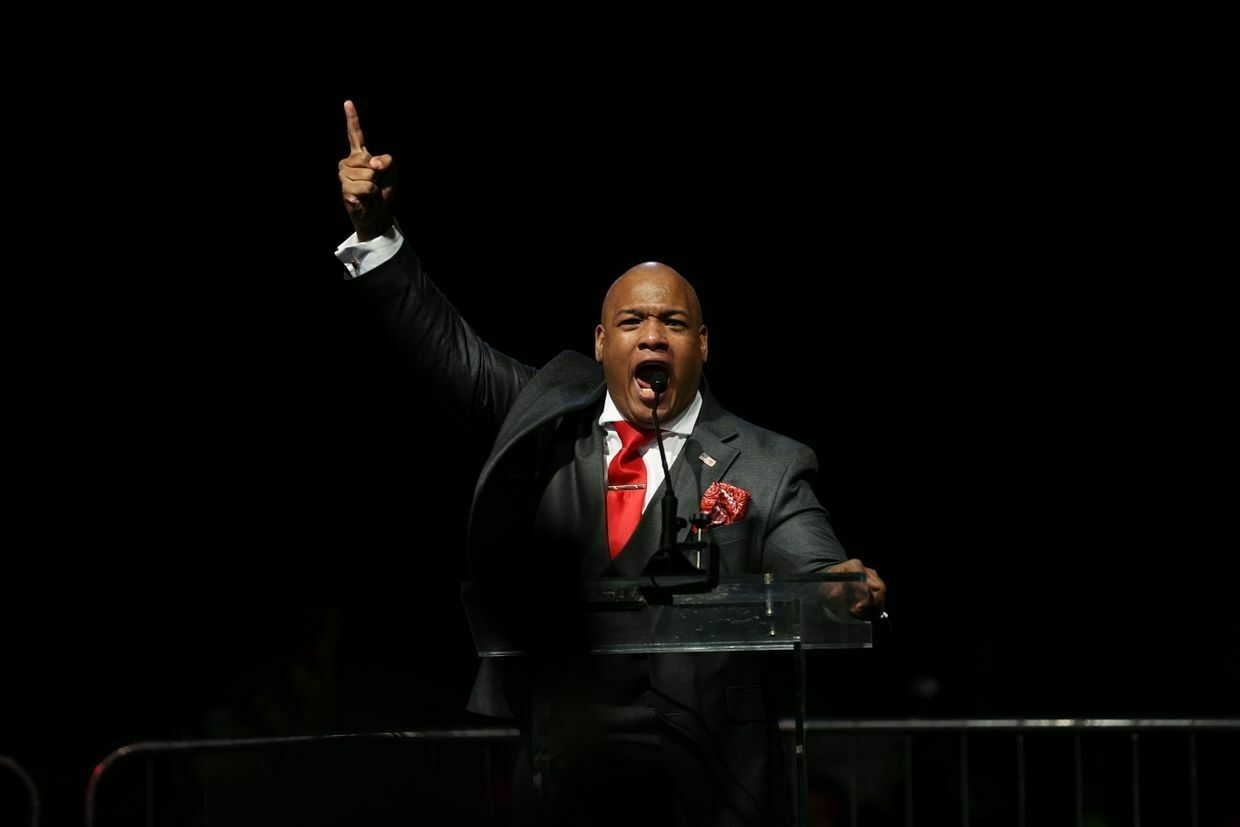
-
Russian missile attack kills 1, injures 6 in Dnipro
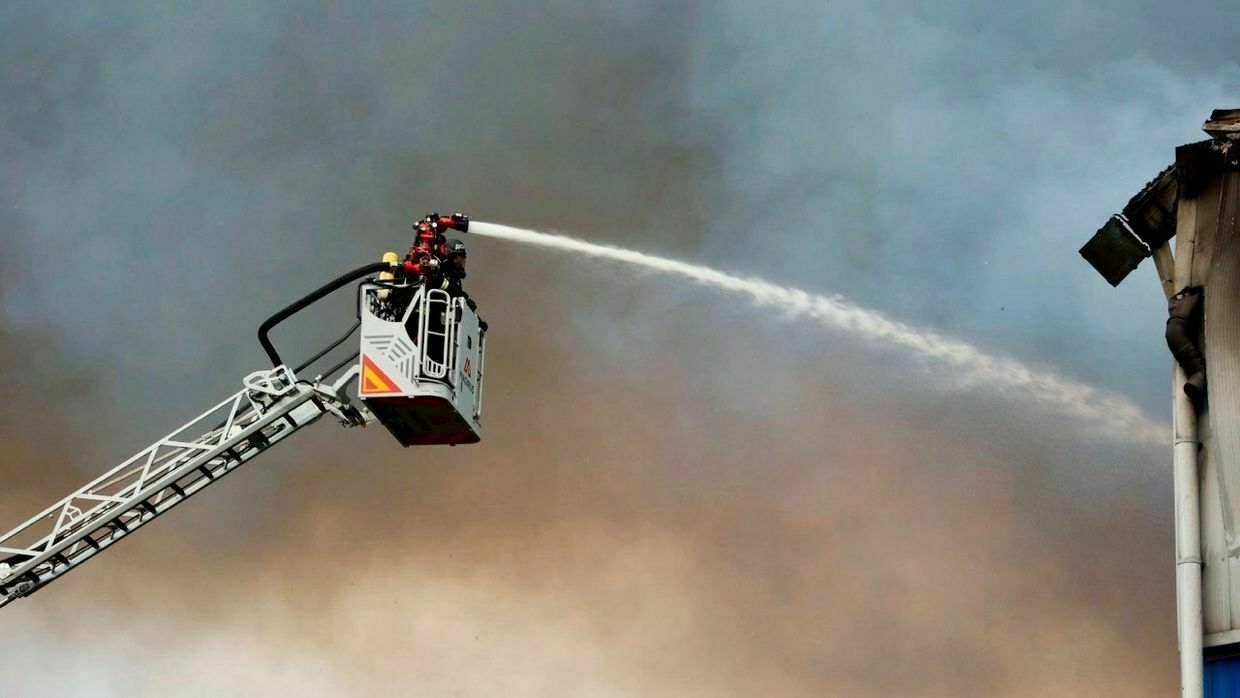
Editor’s note: This is a developing story and is being updated.
A Russian missile strike on the city of Dnipro killed a 42-year-old man and injured six others on April 10, Dnipropetrovsk Oblast Governor Serhii Lysak reported.
“A large-scale fire broke out at the site of the strike. There is damage on the territory of a civilian facility,” Lysak wrote on Telegram.
Among the injured is a 55-year-old woman in serious condition. The others are hospitalized in moderate condition. Firefighters continue efforts to contain the blaze.
The strike destroyed part of a storage facility belonging to Biosphere Corporation, a Ukrainian manufacturer of household goods. Company founder Andrii Zdesenko said the attack caused serious damage.
“We are now working to eliminate the fire to prevent it from spreading to our production facilities,” he said in a statement posted on Facebook.
Dnipro, Ukraine’s fourth-largest city and a critical logistics and humanitarian hub in the country’s central-east, has faced repeated Russian missile and drone attacks since the start of the full-scale invasion.
The attacks come as Moscow continues to refuse a U.S. proposal for a total 30-day ceasefire between Russia and Ukraine.
Kyiv has already said it is ready to accept a full ceasefire once Russia also complies with the terms.
‘Putin is pure evil’ — Trump’s spiritual advisor on Russia’s war against UkraineWhen U.S. President Donald Trump paused military aid to Ukraine last month, the man described as his “spiritual advisor,” Pastor Mark Burns, backed the decision. This week, Burns is urging him to send Kyiv more tanks, fighter jets, and air defense. “I now believe that supporting Ukraine is AmericaThe Kyiv IndependentChris York
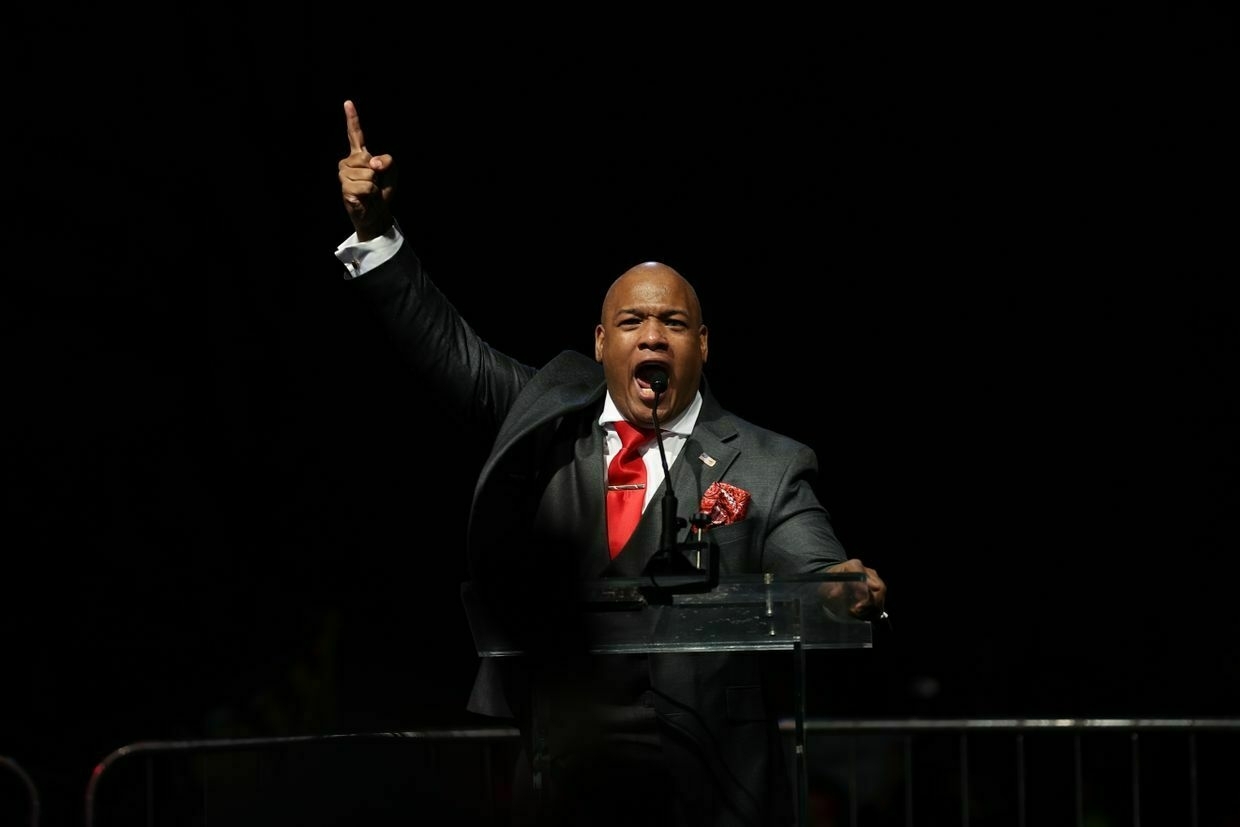
-
Ukraine won't accept any limits on its army in talks with Russia, official says
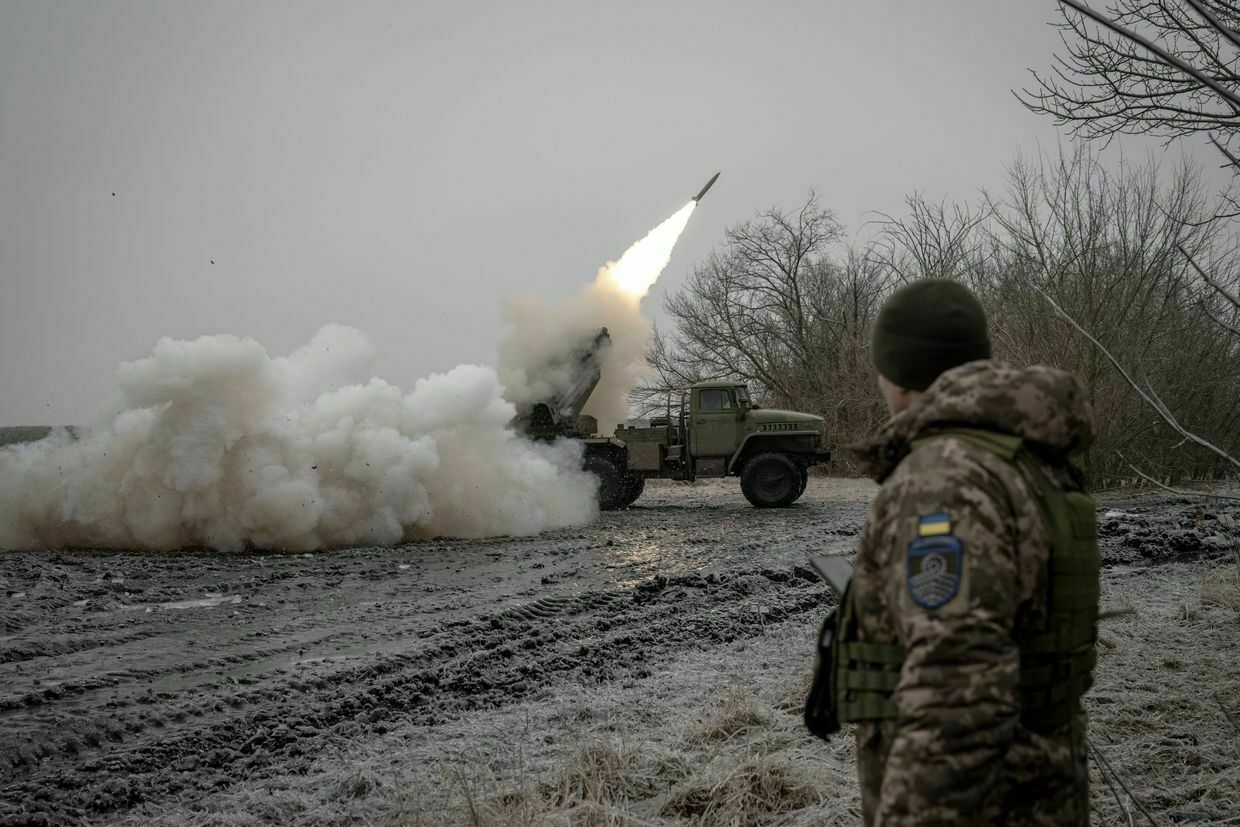
Ukraine will not agree to any restrictions on its armed forces' size or combat readiness as part of negotiations with Russia, President Volodymyr Zelensky’s Deputy Chief of Staff Pavlo Palisa told Reuters in an interview published on April 10.
“This is a principled position of Ukraine — no one, and certainly not the aggressor country Russia, will dictate to Ukraine what kind of armed forces Ukraine should have,” he said.
The well-trained Ukrainian military remains the strongest safeguard against future Russian aggression, the official reiterated.
“I can guess what the Russian Federation is guided by — maybe they want to prepare, to make it easier for themselves in the future, but no. Our task is to learn the lessons (of the past) well,” he said.
Kyiv has formally communicated its stance to Washington, according to Palisa.
The remarks come amid a fragile partial ceasefire covering strikes on energy infrastructure and the Black Sea, brokered in U.S.-mediated talks in Saudi Arabia on March 11.
Kyiv had agreed to a full 30-day ceasefire, but Moscow rejected the proposal on March 13 unless it included restrictions on Ukraine’s military and an end to foreign military aid.
Russian President Vladimir Putin reportedly remains unwilling to compromise in peace talks, complicating U.S. President Donald Trump’s efforts to secure a settlement.
President Volodymyr Zelensky said on April 9 that the U.S. would hold further ceasefire negotiations with Ukraine and Russia in separate meetings in the coming weeks.
“I believe that certain time limits will provide opportunities to put pressure on Russia. If you have a ceasefire for an unclear period — it is a frozen conflict,” the president said.
Trump, who has taken on a mediation role, said on April 7 he was “not happy” with Russia’s intensified bombardments across Ukraine.
NBC News reported on March 30 that Trump was “pissed off” at Putin’s personal animosity toward Zelensky, while the Telegraph wrote on March 23 that he was increasingly angry over Russia’s refusal to de-escalate the war.
Despite expressing frustration, Trump has so far avoided imposing any major sanctions or taking punitive action against Moscow.
‘Putin is pure evil’ — Trump’s spiritual advisor on Russia’s war against UkraineWhen U.S. President Donald Trump paused military aid to Ukraine last month, the man described as his “spiritual advisor,” Pastor Mark Burns, backed the decision. This week, Burns is urging him to send Kyiv more tanks, fighter jets, and air defense. “I now believe that supporting Ukraine is AmericaThe Kyiv IndependentChris York
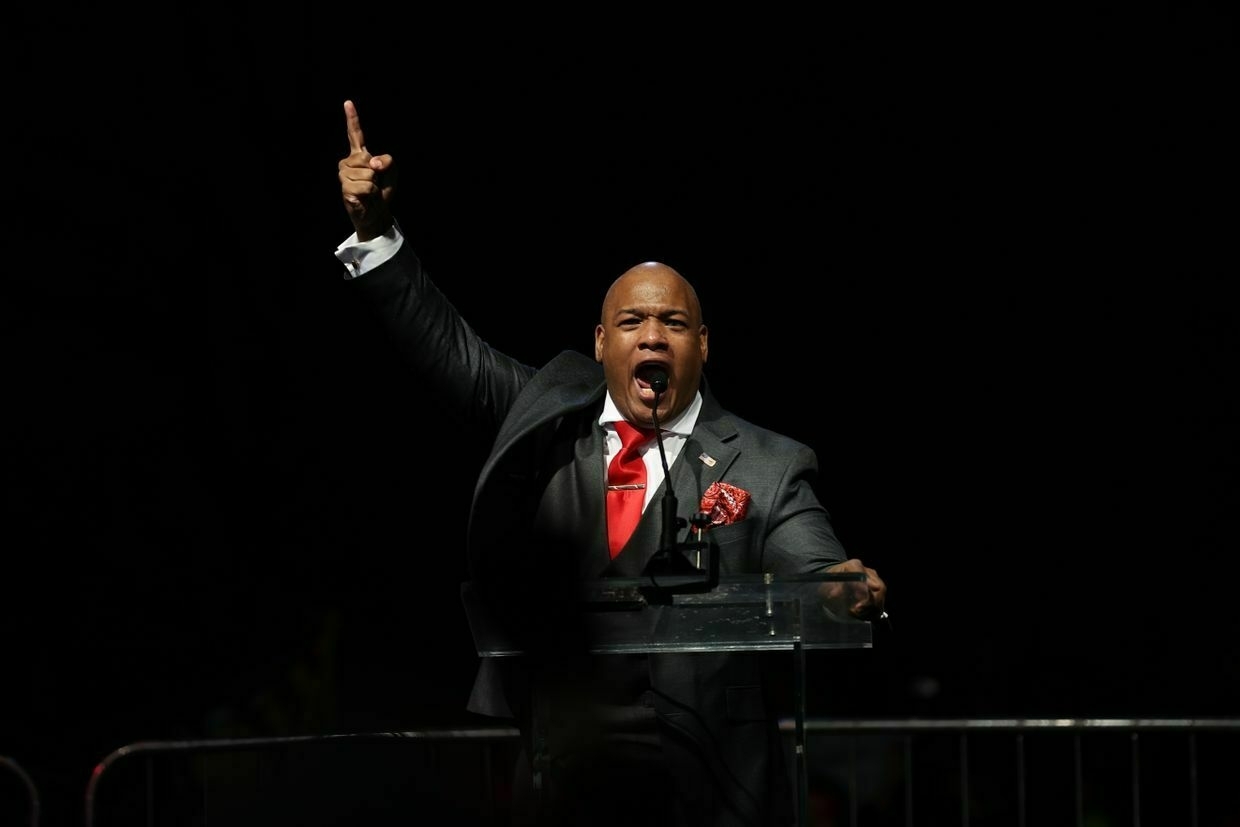
-
4 things you need to know about Viktoria Spartz, the Ukrainian-born US lawmaker
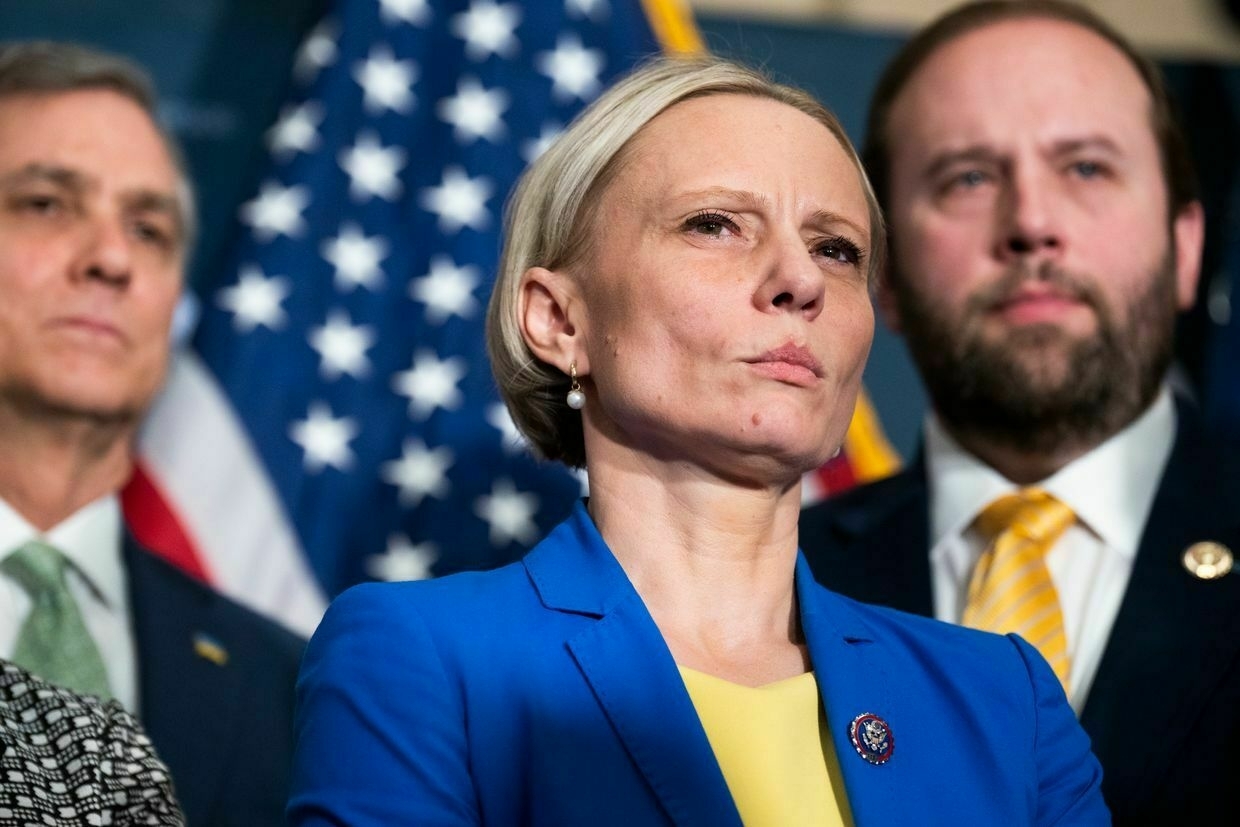
This week a spotlight has once again been shone on Victoria Spartz, the Ukrainian-born Republican lawmaker who is not a stranger to controversy.
Born in Chernihiv Oblast, she moved to the U.S. in 2000. She was elected to Congress three times, in 2020, 2022, and 2024, and represents Indiana’s 5th District.
Despite her roots, Spartz had not been publicly involved in Ukraine-related issues until Russia’s full-scale invasion in 2022.
In the aftermath of the invasion, Spartz began speaking about the war in deeply personal terms. She was present in the Oval Office when President Joe Biden signed the Ukraine Democracy Defense Lend-Lease Act of 2022.
But in the years since, she has drawn criticism for her shifting stance on aid to Ukraine, as well as a series of controversial public statements.
Admitting to using war in Ukraine for electoral purposesSpartz claimed in 2022, without offering evidence, that U.S. weapons provided to Ukraine could be redirected to other countries, including Syria, Russia, and Mexico.
Responding to the claim, then-Foreign Minister Dmytro Kuleba accused her of spreading a “narrative (that) was launched 100% by the Russian Federation."
He also suggested Spartz deliberately mentioned Mexico for political reasons as it “works perfectly in U.S. domestic policy,” given the high levels of immigration from countries across the southern border.
In an interview with Ukrainian journalist Yuriy Butusov in August 2022, Spartz confirmed Kuleba was right.
“Why did I say Mexico? Because one has to understand our situation in the U.S. Our president (then-Democrat President Joe Biden) has decided to completely open our borders with Mexico, and we have an influx of people from South America,” she said.
“Our border officers have huge problems, while cartels are paying a lot on the black market for different weapons."
Alleging Ukrainians hate ZelenskyFollowing a tense exchange between President Volodymyr Zelensky and U.S. President Donald Trump in the Oval Office on Feb. 28, Spartz accused Zelensky of doing “a serious disservice to the Ukrainian people by insulting the American president and the American people — just to appease Europeans and increase his low polling in Ukraine."
The claim echoed earlier false statements from Trump, who said that Zelensky had an approval rating of 4%.
However, a February survey before the clash with Trump put Zelensky’s trust level at 57%, with a trust-distrust balance of +20%.
The most recent polling shows Zelensky’s trust rating surging to 69% in the wake of the Oval Office showdown.
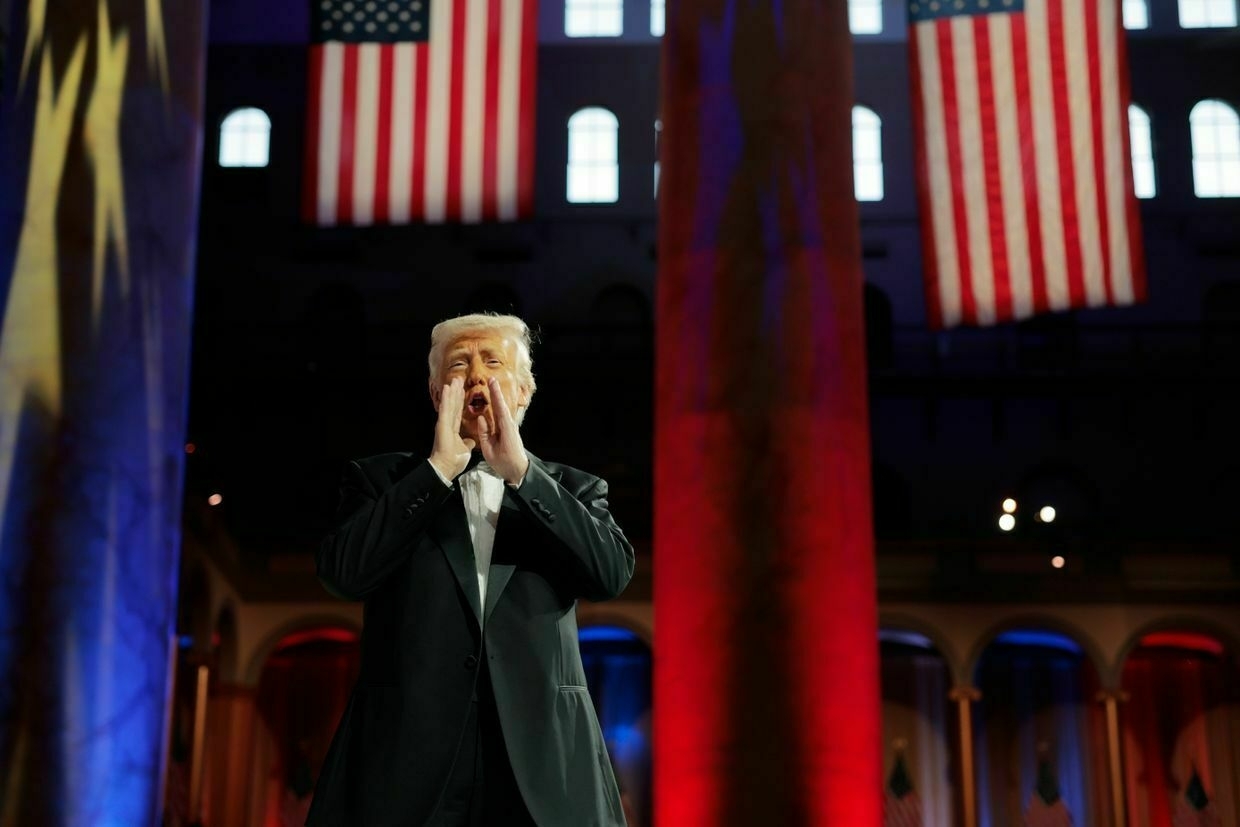
U.S. President Donald Trump at the National Building Museum in Washington, D.C., U.S. on April 8, 2025. (Anna Moneymaker / Getty Images) Accusing Zelensky of controlling media in Ukraine… and BritainMore recently, in an interview published on April 7 by the Telegraph, Spartz said Ukraine should consider ceding land to Russia and urged its people to demand the resignation of Zelensky.
After facing backlash from Ukrainian officials and media, Spartz accused the Telegraph of intentionally misrepresenting her views.
“I would not be surprised that Zelensky is paying The Telegraph to fabricate false headlines to continue making money on the blood of the Ukrainian people."
It’s not the first time Spartz accused the Ukrainian president of holding sway over free media.
“Zelensky took control of all Ukrainian media, prosecutes churches, businesses, and volunteers, covered up corruption for his friends, uses ‘puppet’ prosecutors to unlawfully imprison and intimidate anyone who tells the truth about his failures to defend his country or could be a potential political opponent, including his own military and generals,” Spartz wrote on Feb. 20.
No evidence was provided, while no Ukrainian media outlet is known of being controlled by the country’s president.
Concerning Spartz’s comments about churches, the best response came from Pastor Mark Burns, sometimes referred to as Trump’s “spiritual advisor."
“My support for Ukraine is not a stab at him, but a call to every Republican, every conservative, every American, and those around the world who, like me, have been brainwashed by fake news media about Ukraine,” Burns told the Kyiv Independent.
“For instance, fake news suggested that Ukraine hated churches, Ukraine hated ministries, that they intentionally destroyed ministries."
“Well, that is a bold-faced lie because I was in the midst of some of Ukraine’s greatest spiritual leaders from all different sects and religious organizations in one room in Kyiv, and they all have the same common ground — they have the right to practice their faith in Ukraine,” he said.
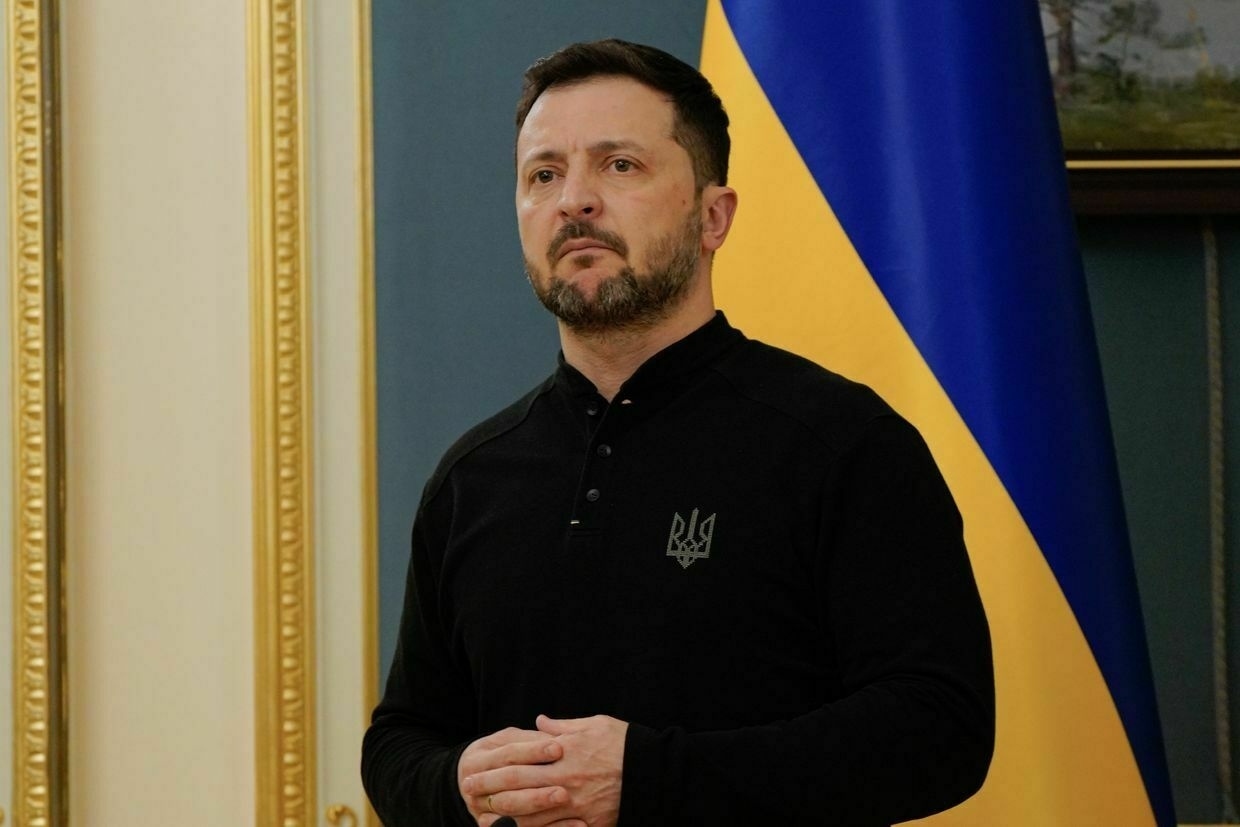
President Volodymyr Zelensky in Kyiv, Ukraine, on April 4, 2025. (Ihor Kuznietsov / Novyny LIVE / Global Images Ukraine via Getty Images) Criticizing Ukrainians in Kyiv for eating outIn an interview with European Pravda in September, Spartz lambasted people living in Kyiv for doing normal things like eating in cafes or restaurants.
“You are not preparing for war. You even act like you donʼt have a war. People are sitting in restaurants in Kyiv as if you donʼt have war anymore because the war has gone to the east,” she said.
As pointed out by the Ukrainian news outlet Svidomi, maintaining some level of normality in wartime is essential for a country’s economy, not to mention the mental state of its citizens.
‘Putin is pure evil’ — Trump’s spiritual advisor, Pastor Mark Burns, on Russia’s war against UkraineWhen U.S. President Donald Trump paused military aid to Ukraine last month, the man described as his “spiritual advisor,” Pastor Mark Burns, backed the decision. This week, Burns is urging him to send Kyiv more tanks, fighter jets, and air defense. “I now believe that supporting Ukraine is AmericaThe Kyiv IndependentChris York
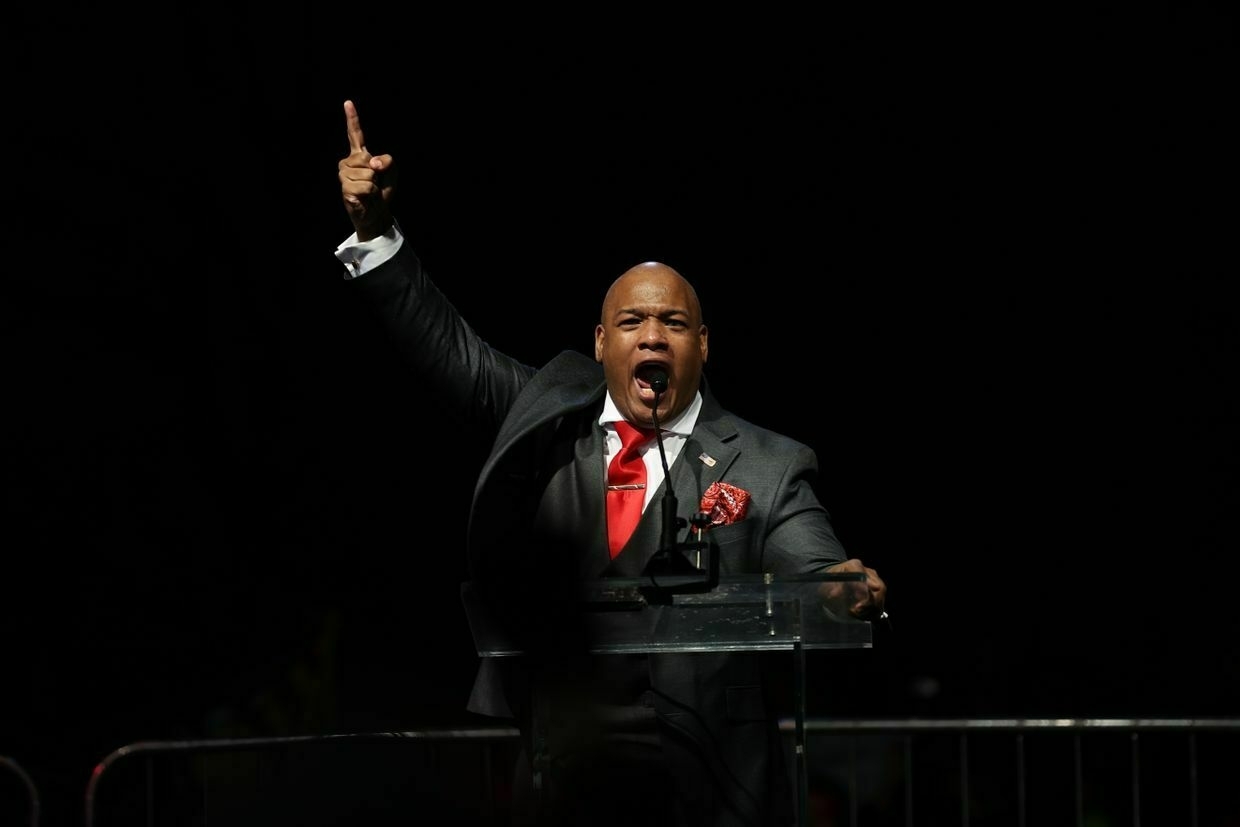
-
US-Russia talks in Istanbul were 'constructive,' State Department says
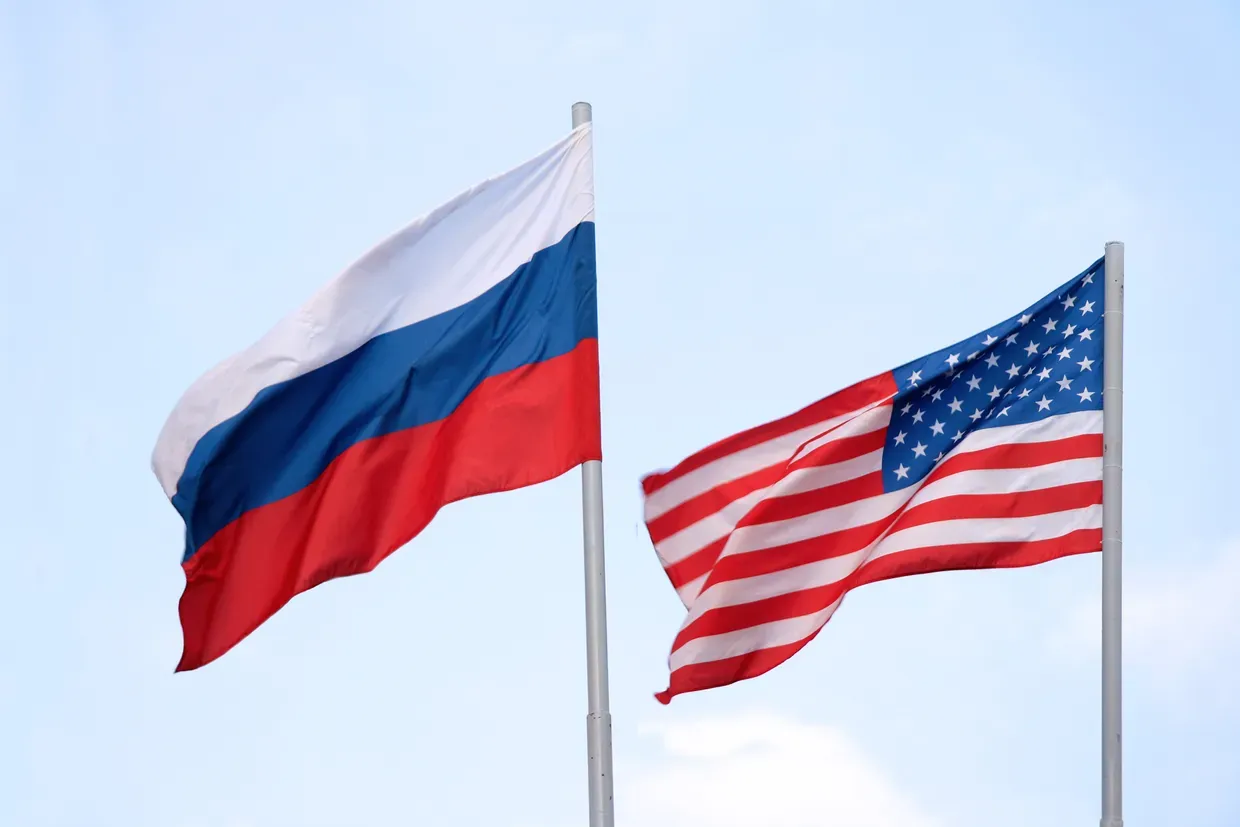
The U.S. State Department described the April 10 talks between Washington and Moscow in Istanbul as having a “constructive approach,” according to an official statement.
The closed-door consultations lasted approximately six hours.
Officials from both delegations agreed to continue discussions on ensuring stable banking services for diplomatic missions and exchanged notes on the matter. A follow-up meeting is planned.
The U.S. also reiterated its long-standing concern over Russia’s ban on employing local staff for its embassy in Moscow, calling it “the key impediment to maintaining stable and sustainable staffing levels."
On the same day, the two countries carried out a prisoner exchange in Abu Dhabi.
Russia released Ksenia Karelina, a U.S.-Russian dual national who had been sentenced to 12 years in prison for treason after donating $51.80 to the Ukrainian American nonprofit Razom for Ukraine. Moscow accused her of indirectly financing Ukraine’s Armed Forces.
In return, Washington reportedly freed Artur Petrov, a German-Russian dual citizen who was detained in Cyprus in 2023 at the U.S.’s request. Petrov was accused of exporting sensitive American microelectronics.
The talks in Istanbul follow previous meetings on embassy operations held on Feb. 27 and separate rounds of peace discussions in Saudi Arabia.
U.S. President Donald Trump, who assumed office earlier this year, has drawn praise from Moscow for his efforts to restore bilateral relations despite Russia’s war against Ukraine..
‘Supporting Ukraine is America first’ — Trump’s spiritual advisor, Pastor Mark BurnsWhen U.S. President Donald Trump paused military aid to Ukraine last month, the man described as his “spiritual advisor,” Pastor Mark Burns, backed the decision. This week, Burns is urging him to send Kyiv more tanks, fighter jets, and air defense. “I now believe that supporting Ukraine is AmericaThe Kyiv IndependentChris York
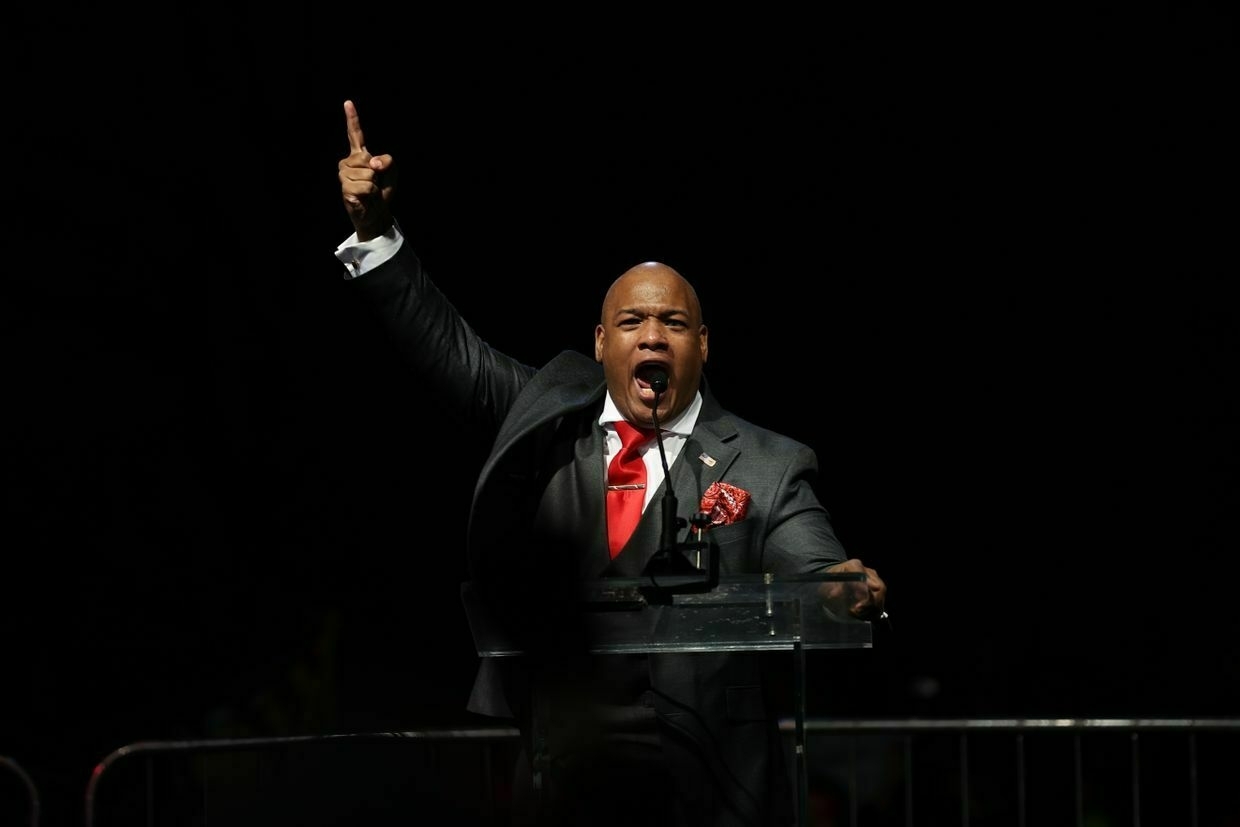
-
Moldovan FM invites Musk to see impact of US aid amid USAID freeze
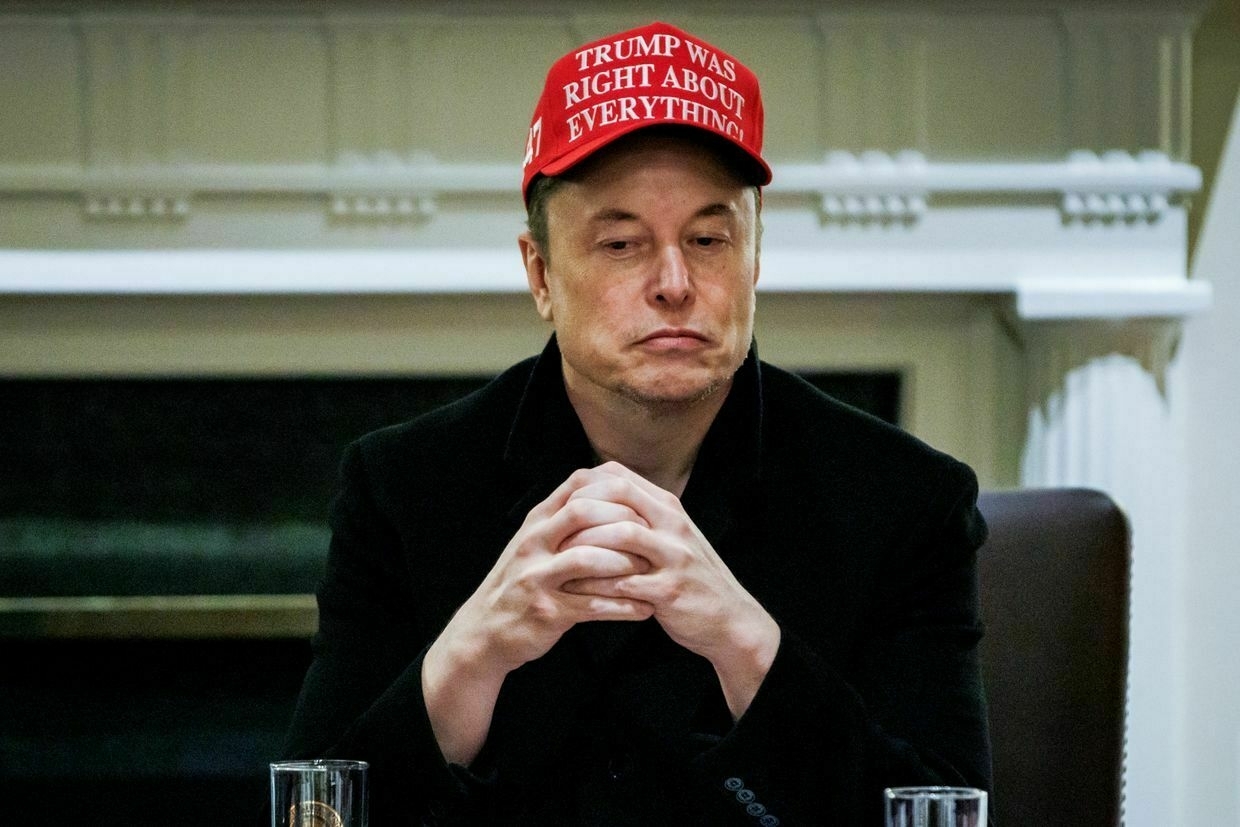
Moldova’s Deputy Prime Minister and Foreign Minister Mihai Popșoi has extended a public invitation to tech billionaire and senior adviser to the U.S. President Elon Musk to visit the country and see firsthand the impact of U.S. development aid, following the Trump administration’s suspension of all U.S. Agency for International Development (USAID) programs worldwide.
The invitation comes after Musk — appointed by U.S. President Donald Trump to lead a federal cost-cutting initiative — called USAID “a criminal organization.”
The Trump administration has since paused all USAID operations worldwide for 90 days, citing the need for a comprehensive review and reform. By March, 83% of global USAID programs had been canceled.
Speaking to Jurnal TV, Popsoi said a visit could persuade Musk that American taxpayer dollars have been well spent in Moldova. He highlighted successful projects such as Artcor, Mediacor, and the revitalization of the Moldovan wine industry.
“That may be the case if he comes. Mr. Musk can convince himself by going to Artcor, to Mediacor, to visit the wine industry, which was helped by USAID to increase the country’s brand,” Popsoi said.
“Even U.S. consumers enjoy the quality of our wine, which now will probably become a bit more expensive in the context of tariffs.”
USAID’s largest investment in Moldova is the $300 million Energy Security program. It has funded the construction of a high-voltage power line linking Moldova and Romania, the modernization of Moldova’s electricity operator Moldelectrica, and the development of Energocom and the Ministry of Energy.
In Ukraine, since the start of Russia’s full-scale invasion, USAID has provided $2.6 billion in humanitarian aid, $5 billion in development assistance, and more than $30 billion in direct budget support to Kyiv.
Ukraine’s democracy faces collapse as civil society aid disappearsThe space for civil society and a free press is shrinking dramatically after U.S. President Donald Trump’s administration launched a war against American aid, which had long supported crucial social initiatives and journalism in countries in need. Following that crisis, the United Kingdom announced…The Kyiv IndependentKaterina Sergatskova
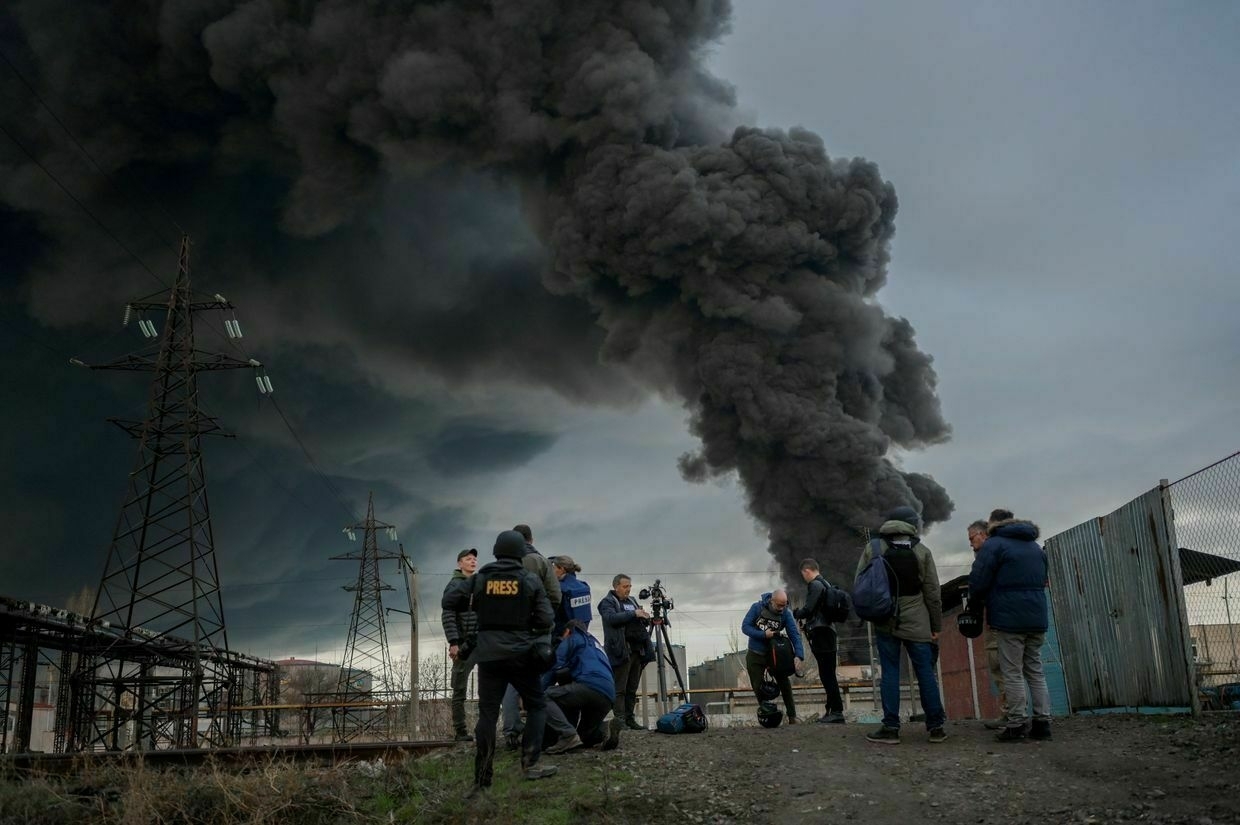
-
Estonia passes law targeting Moscow-linked church ties
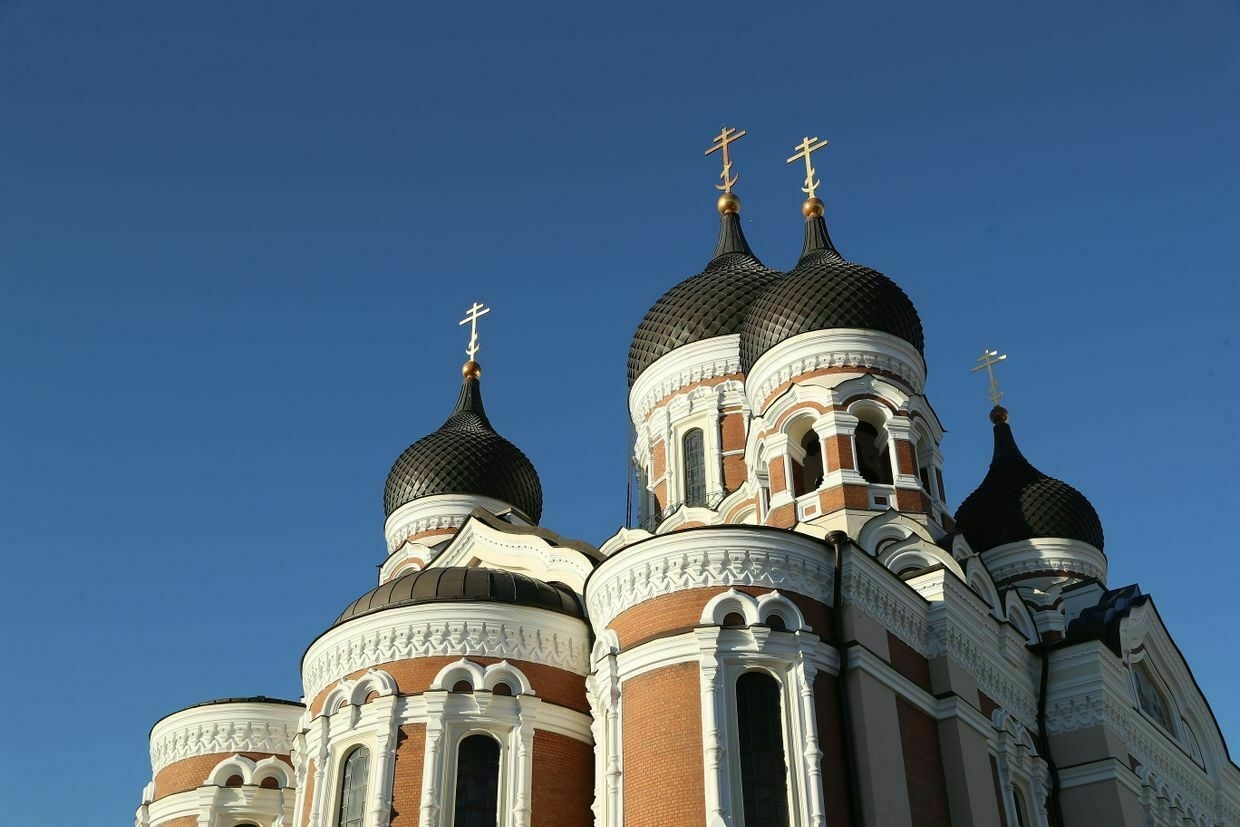
The Estonian parliament passed a law on April 9 that will require religious organizations to cut ties with foreign institutions that incite violence or hatred, mandating the Estonian Orthodox Church to sever its connection with the Moscow Patriarchate.
The legislation aims to prevent foreign influence in Estonia’s religious sphere if it threatens national security, constitutional order, or public order or if it promotes military aggression or incites war, according to the parliament’s press service.
The Estonian Orthodox Church, which operates under the jurisdiction of the Russian Orthodox Church, also known as the Moscow Patriarchate, will be directly impacted.
According to Estonian public broadcaster ERR, the church will be compelled to cut ties with Moscow when the law, which still requires presidential approval, takes effect.
The Moscow Patriarchate has openly supported Russia’s full-scale invasion of Ukraine.
Patriarch Kirill, a staunch ally of Russian President Vladimir Putin, has repeatedly endorsed the war, describing Putin’s rule as a “gift from God” and blessing Russian military operations.
Kirill’s stance has deepened divisions within the global Orthodox community and led to legal action in Ukraine, where authorities placed him on a wanted list in December 2023 for violating the country’s territorial integrity.
Estonian officials have previously accused the local Orthodox Church’s leadership of sympathizing with Russian aggression.
Estonia’s parliament had already designated the Russian Orthodox Church as an “institution sponsoring the military aggression of the Russian Federation” in a resolution passed on May 6, 2024.
Estonia, a vocal supporter of Ukraine and a NATO frontline state, has taken a firm stance against Russian influence since the start of the invasion.
‘Supporting Ukraine is America first’ — Trump’s spiritual advisor, Pastor Mark BurnsWhen U.S. President Donald Trump paused military aid to Ukraine last month, the man described as his “spiritual advisor,” Pastor Mark Burns, backed the decision. This week, Burns is urging him to send Kyiv more tanks, fighter jets, and air defense. “I now believe that supporting Ukraine is AmericaThe Kyiv IndependentChris York
